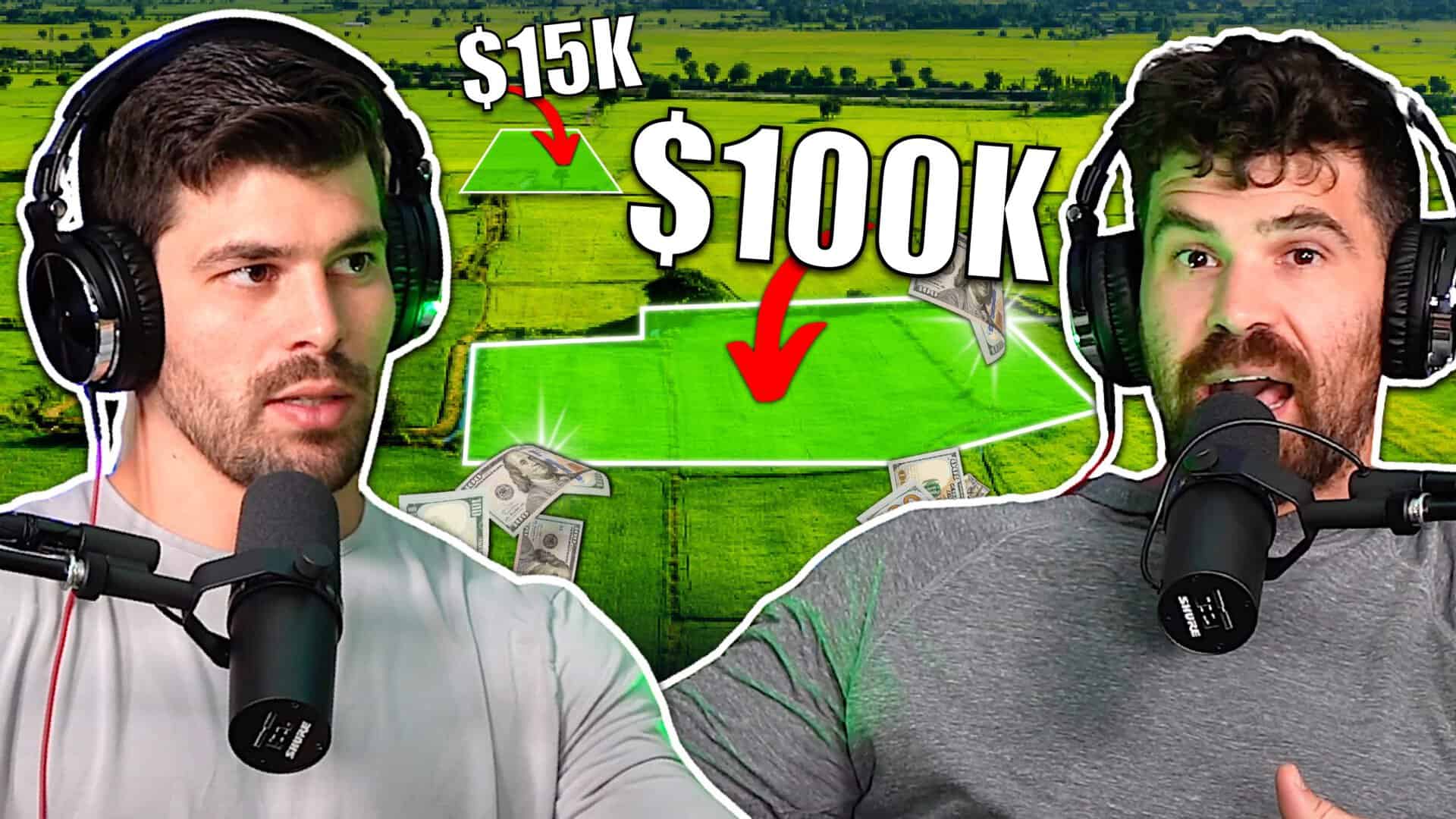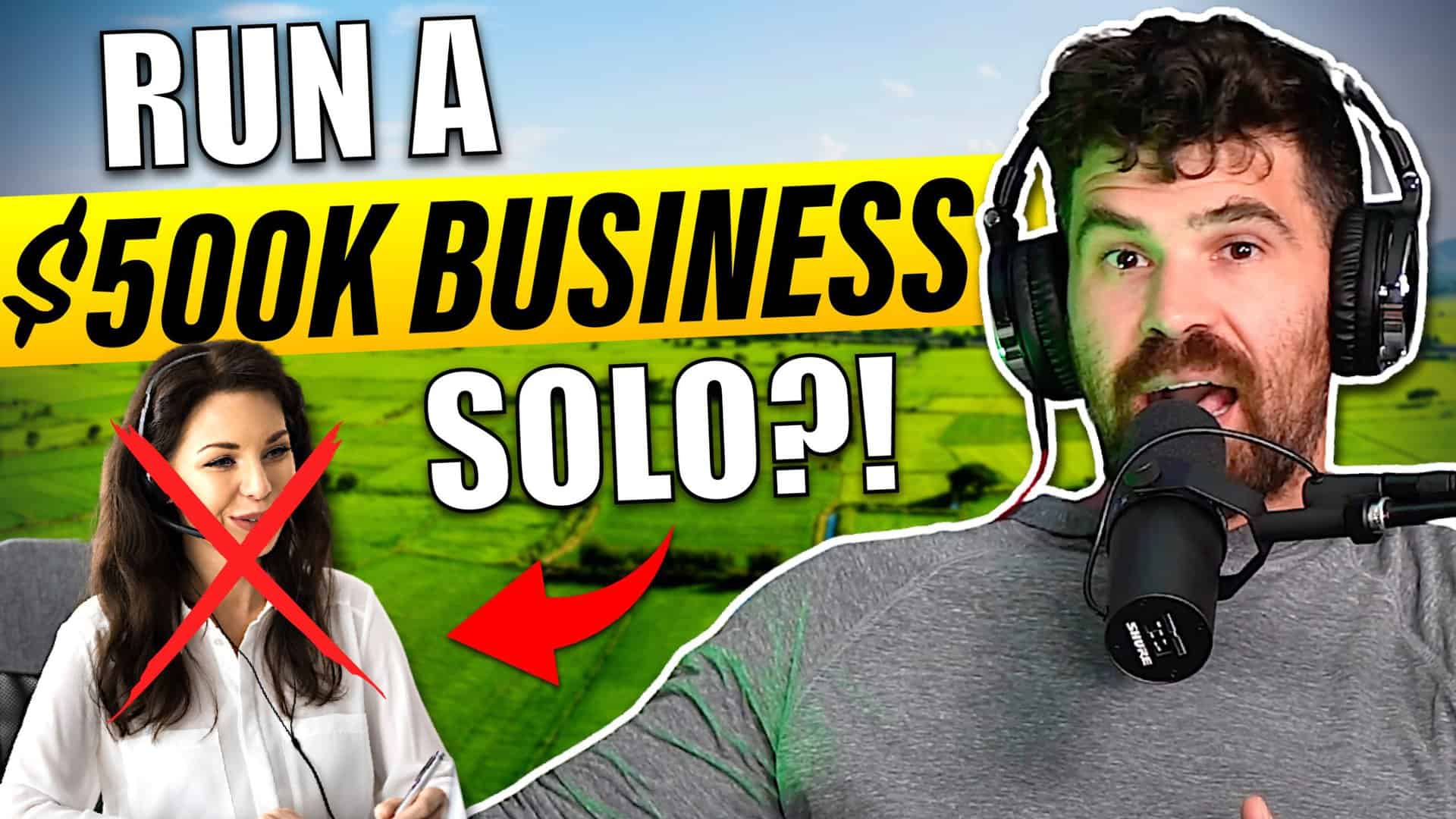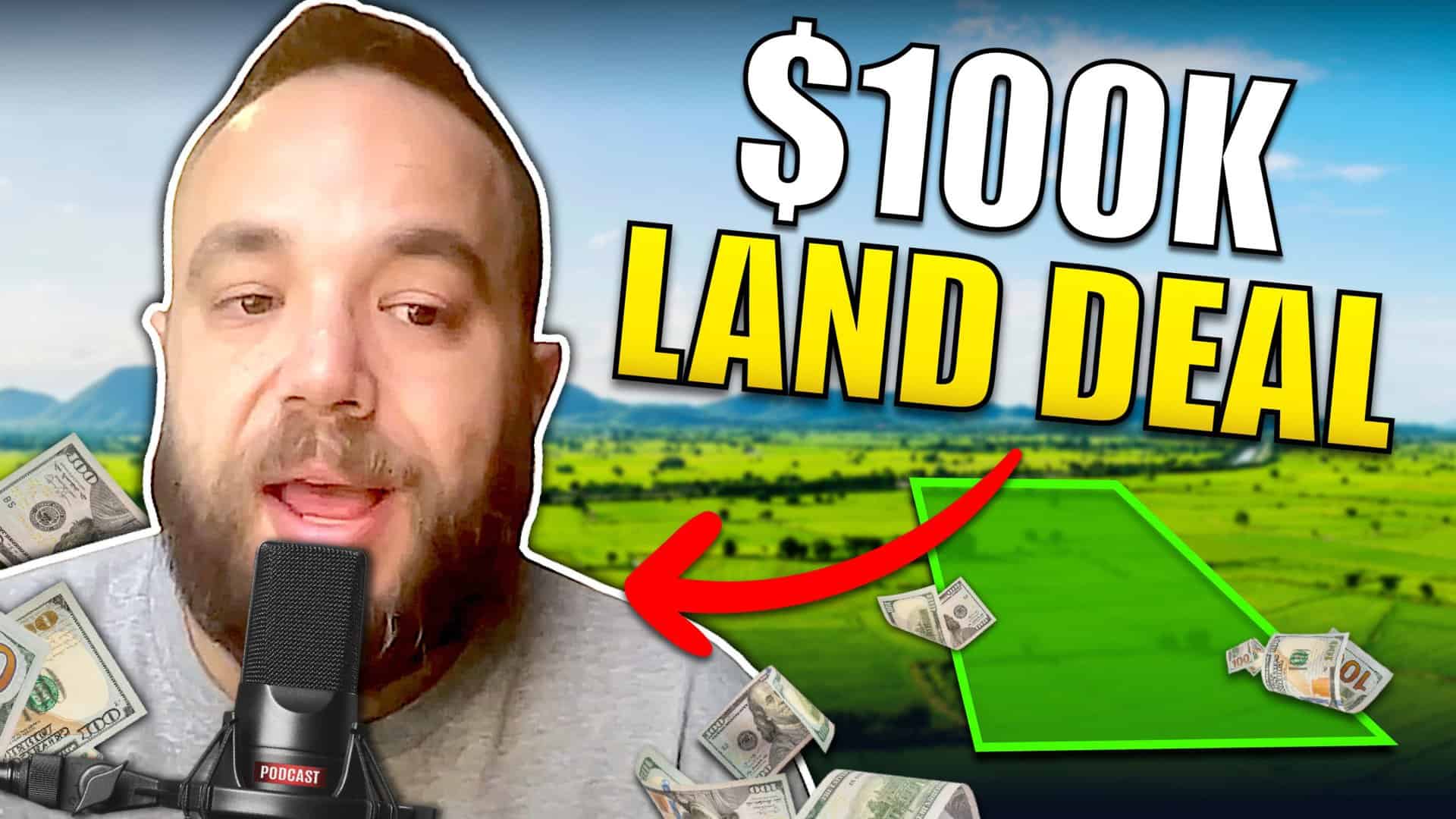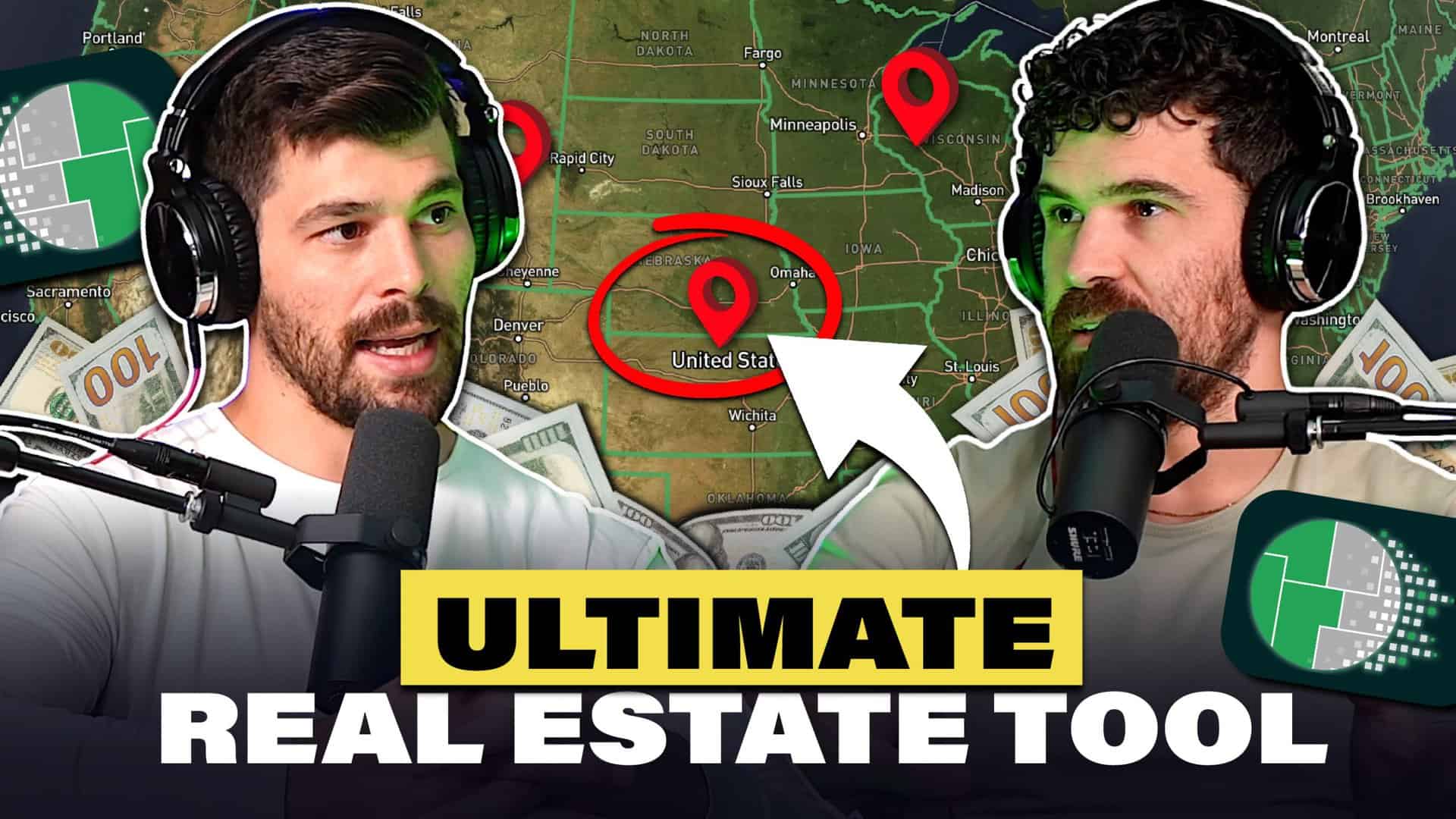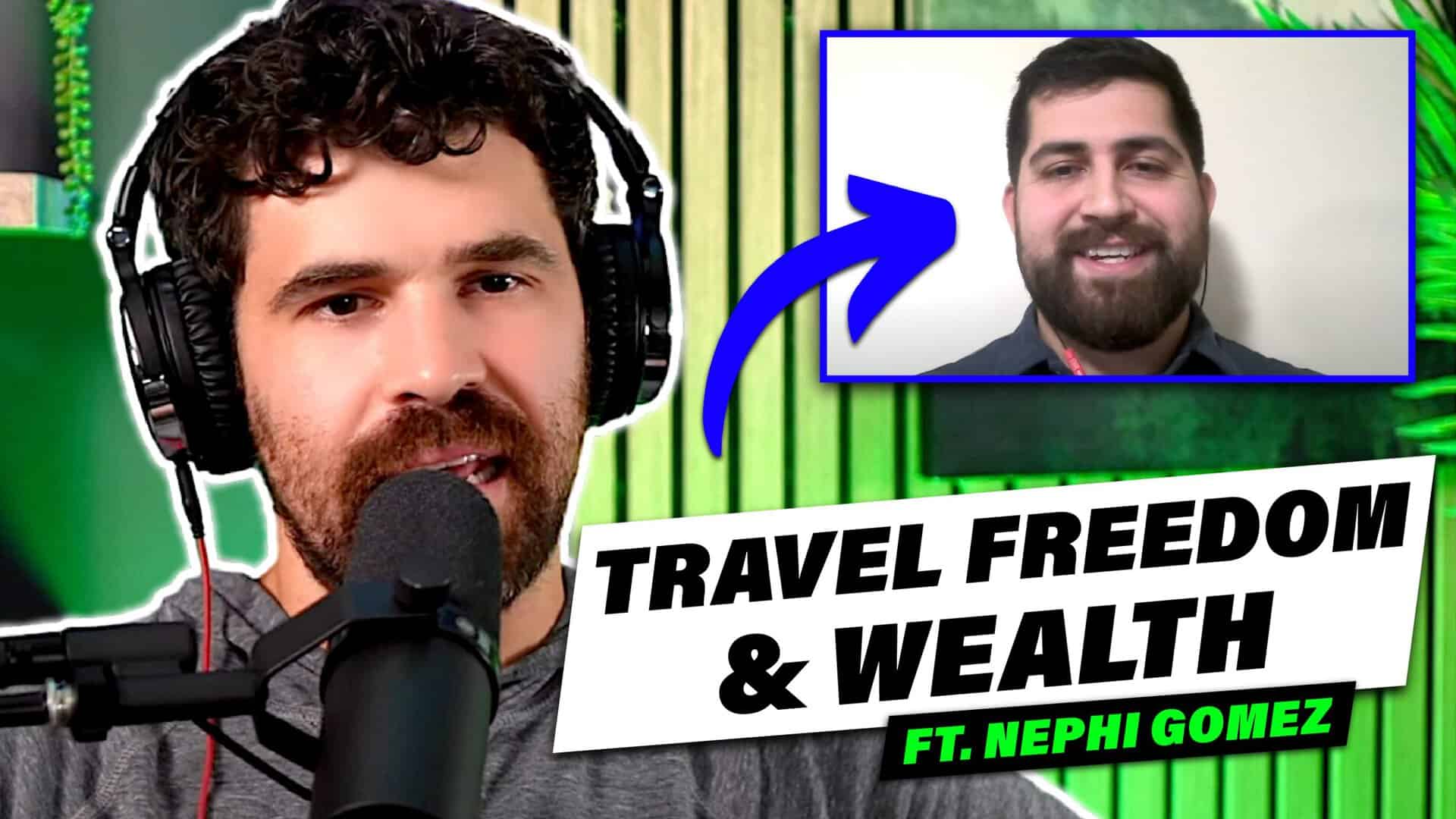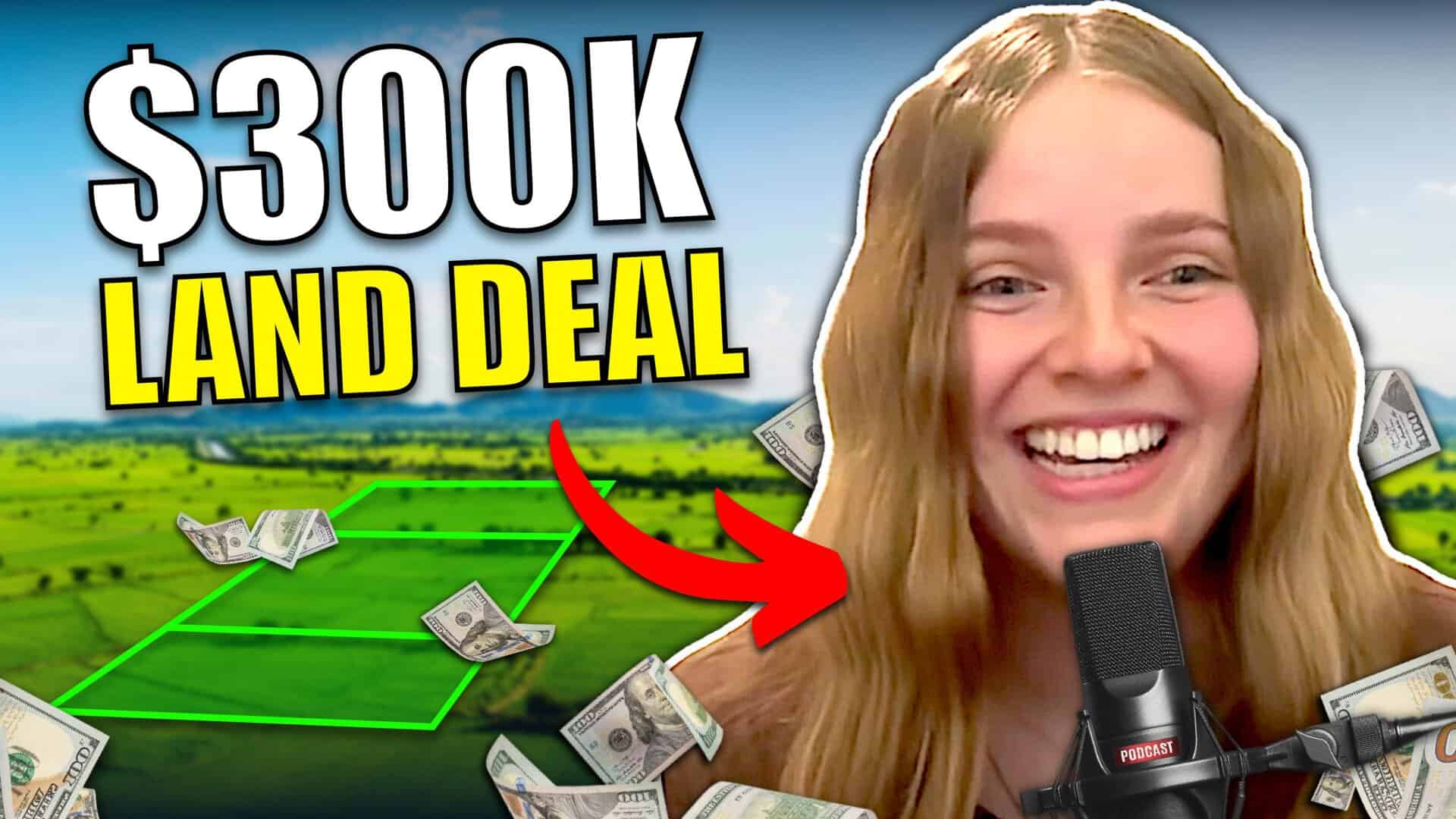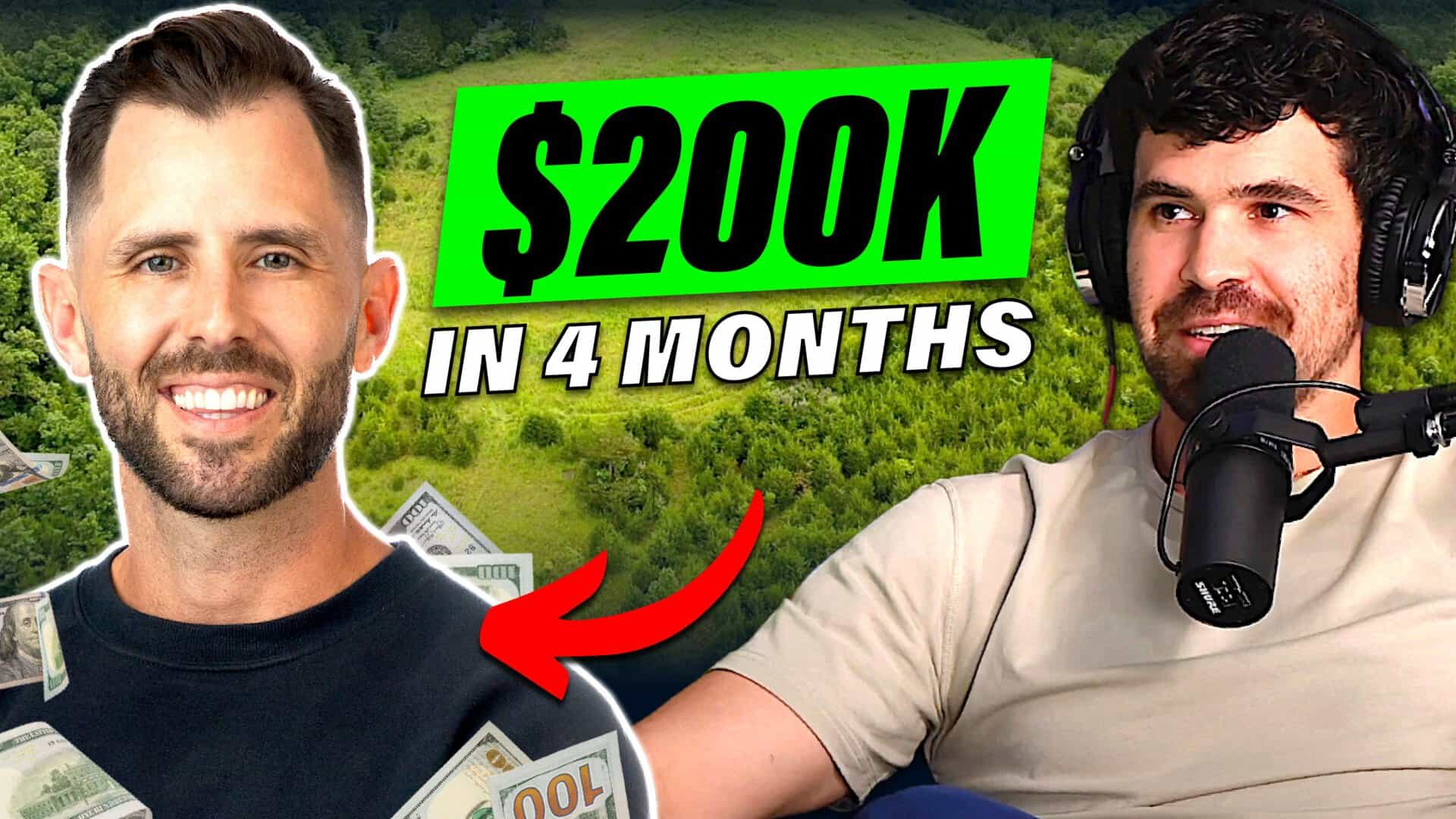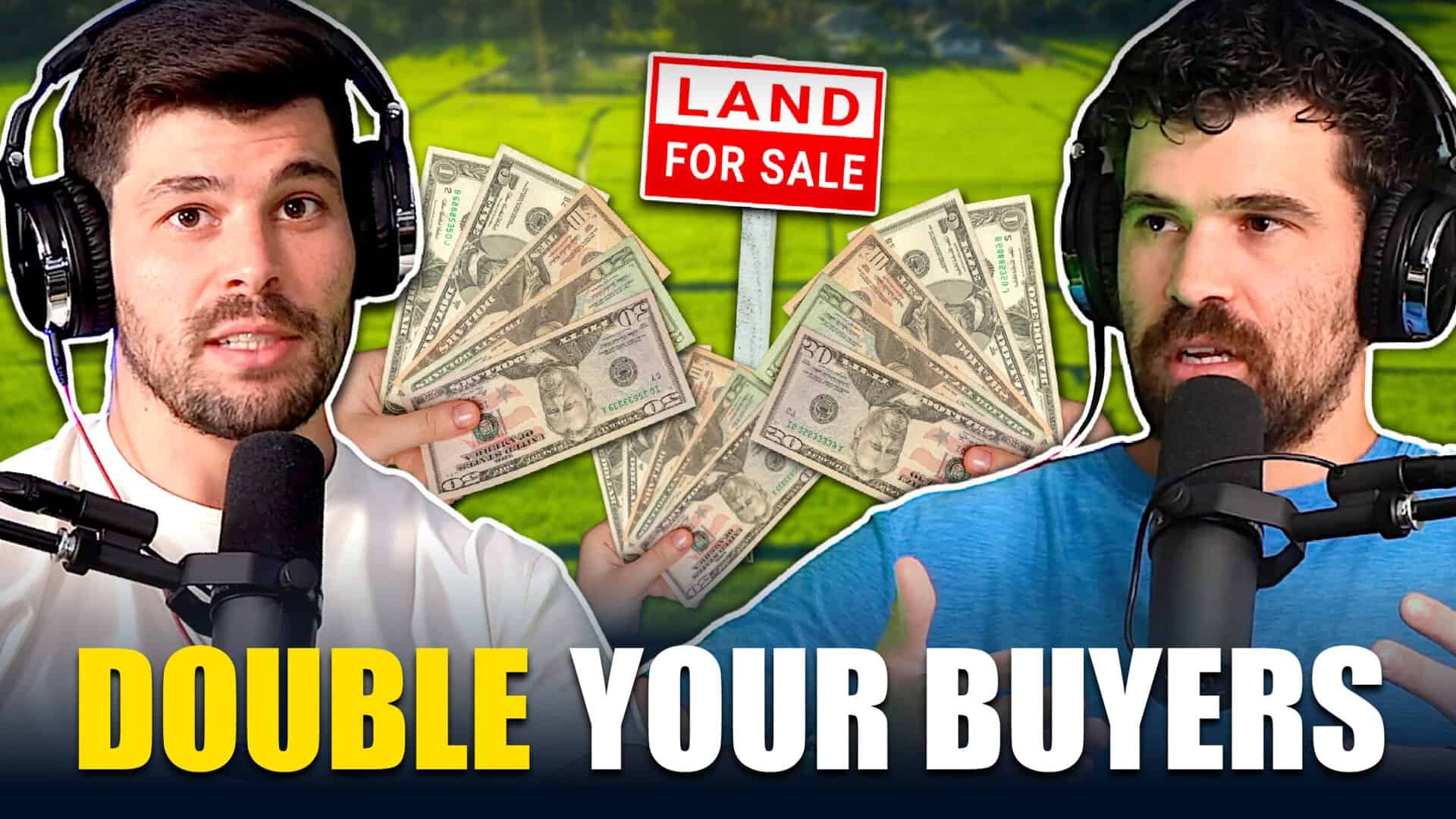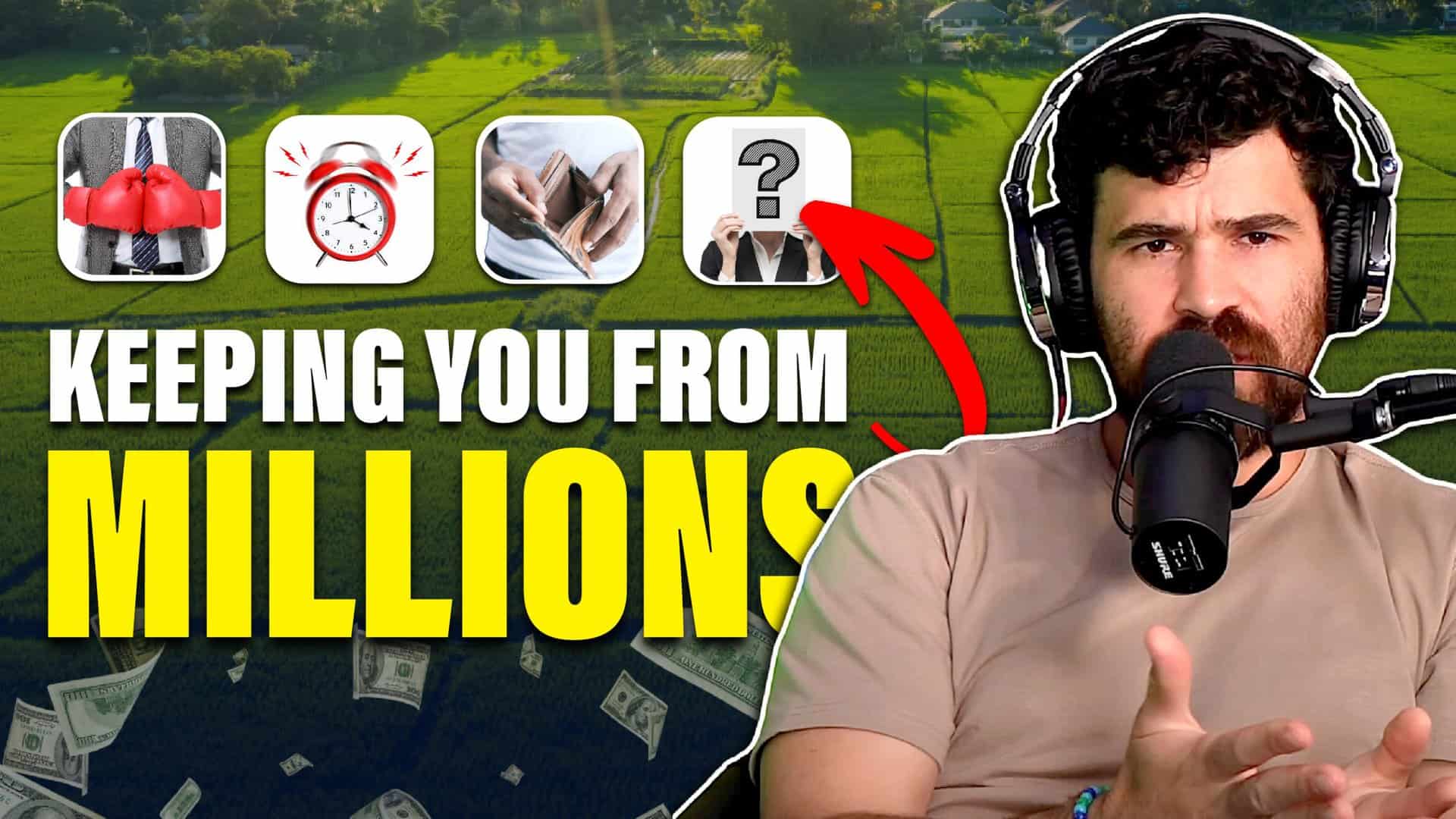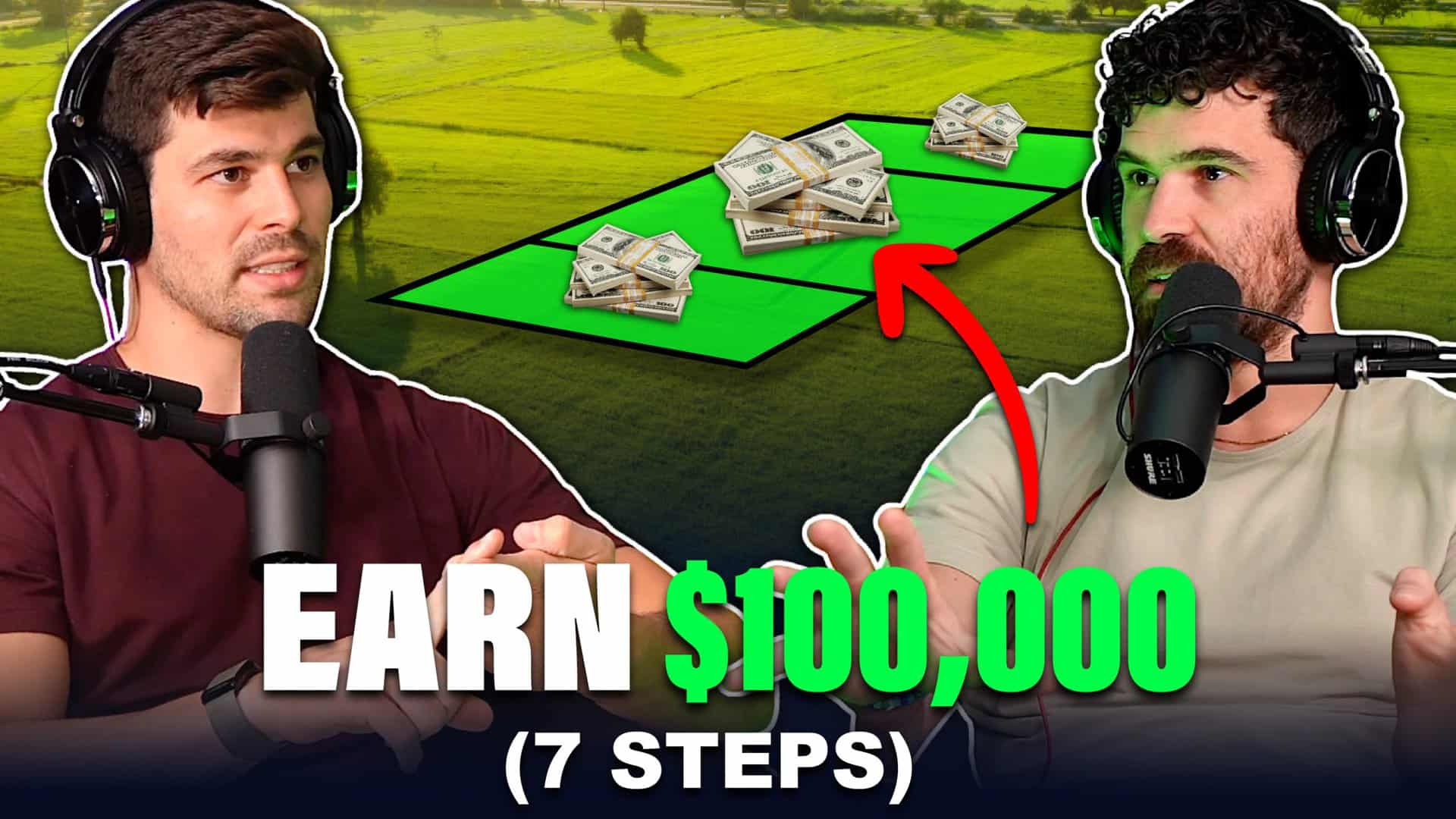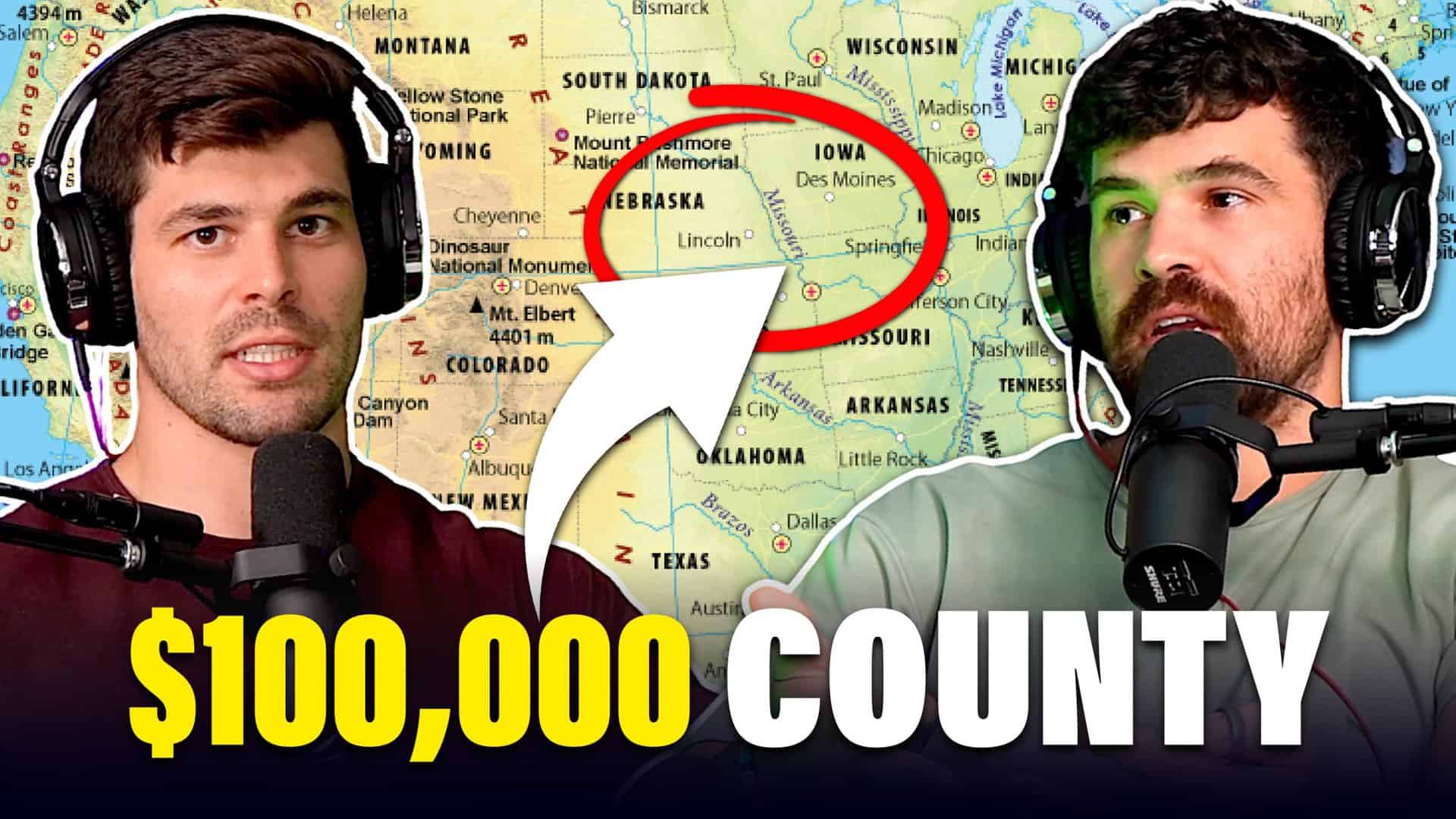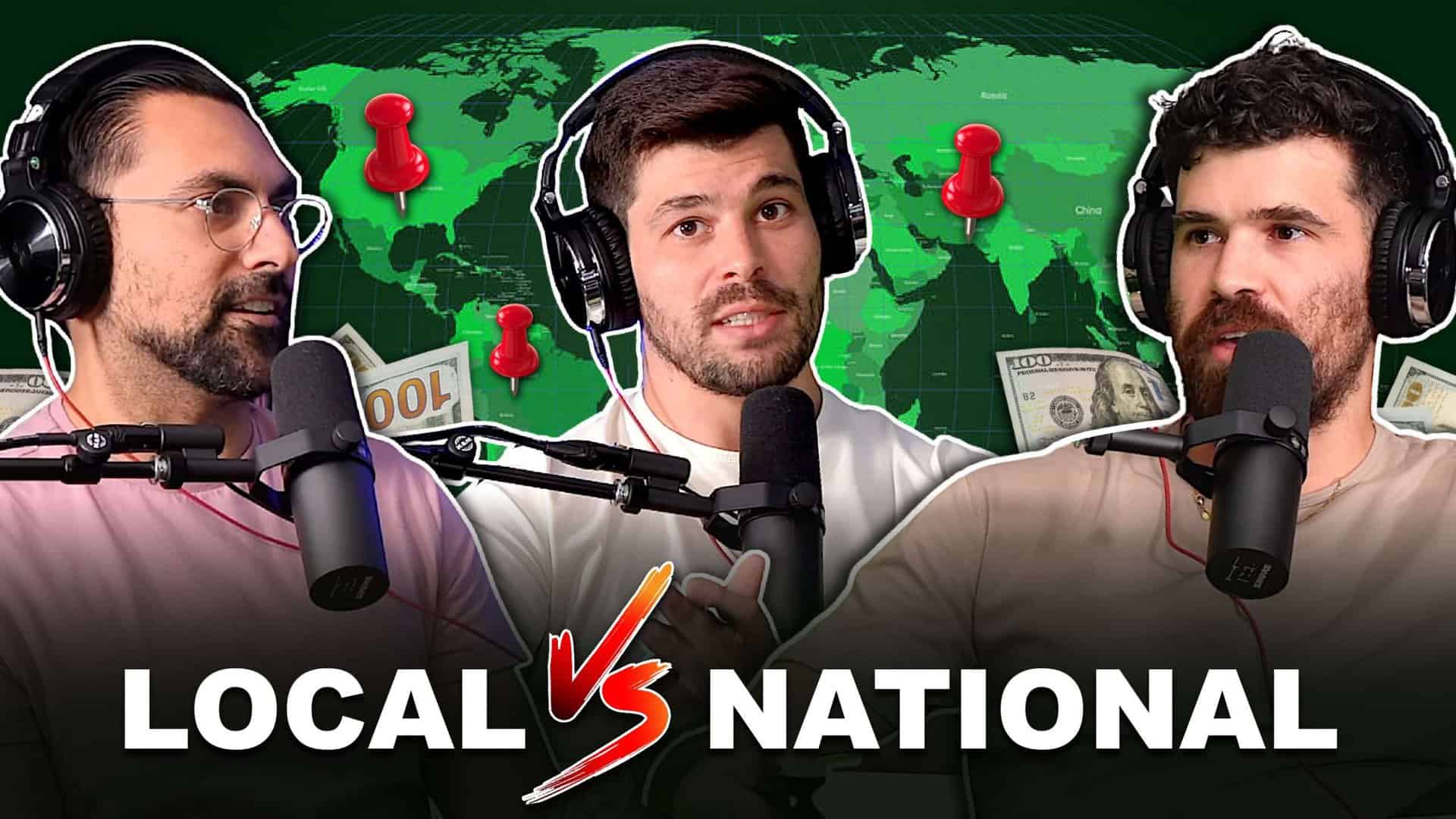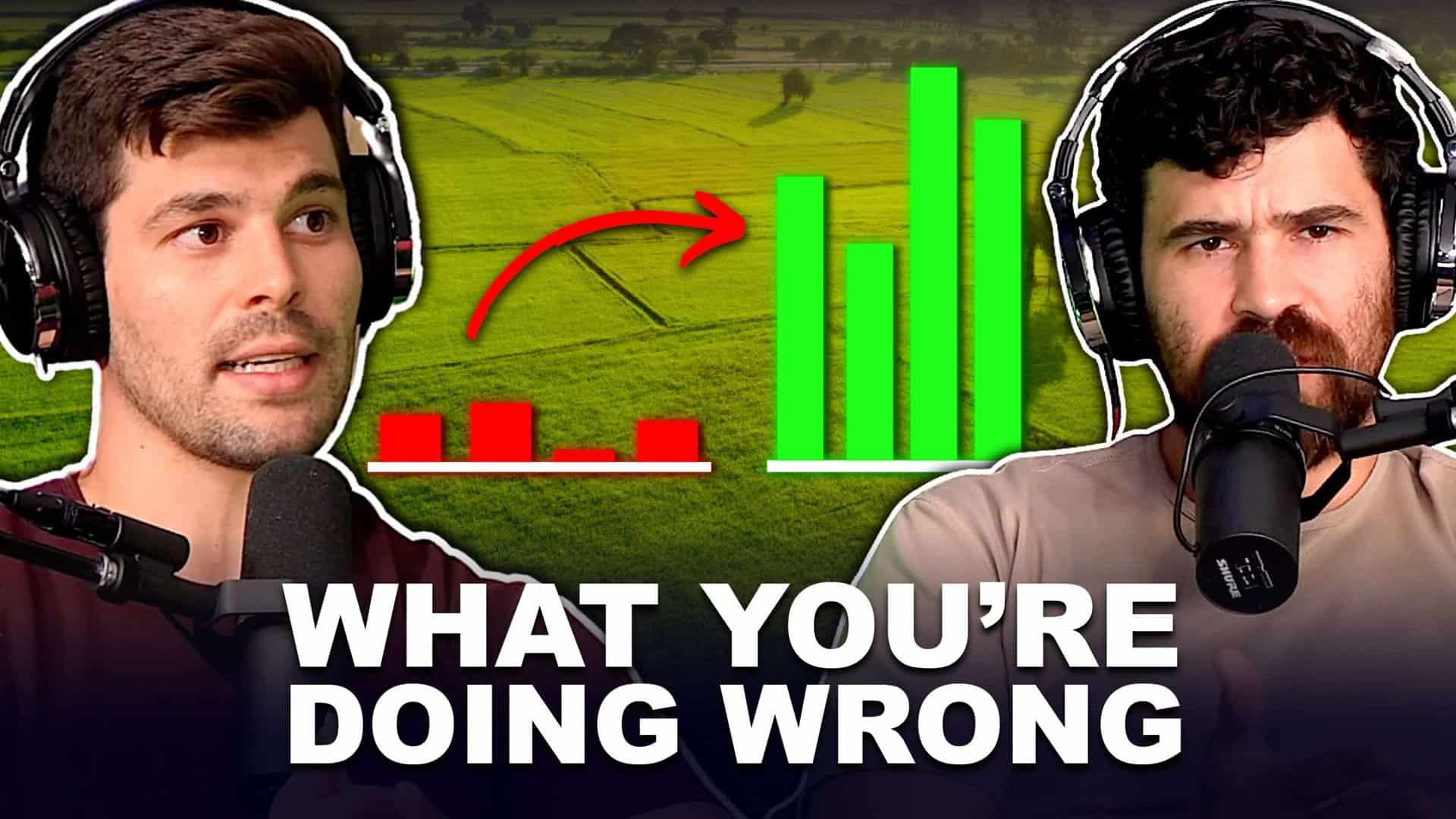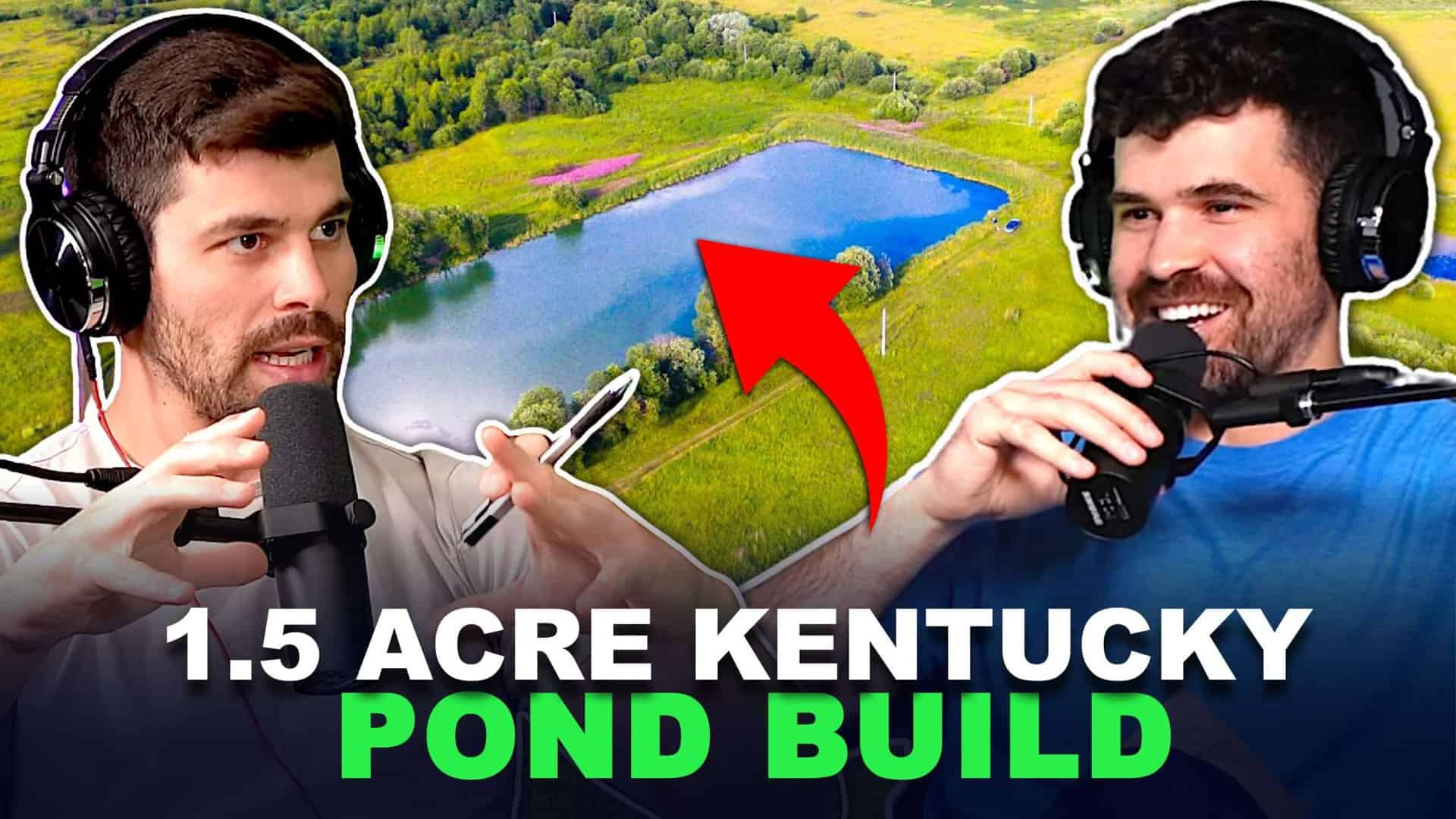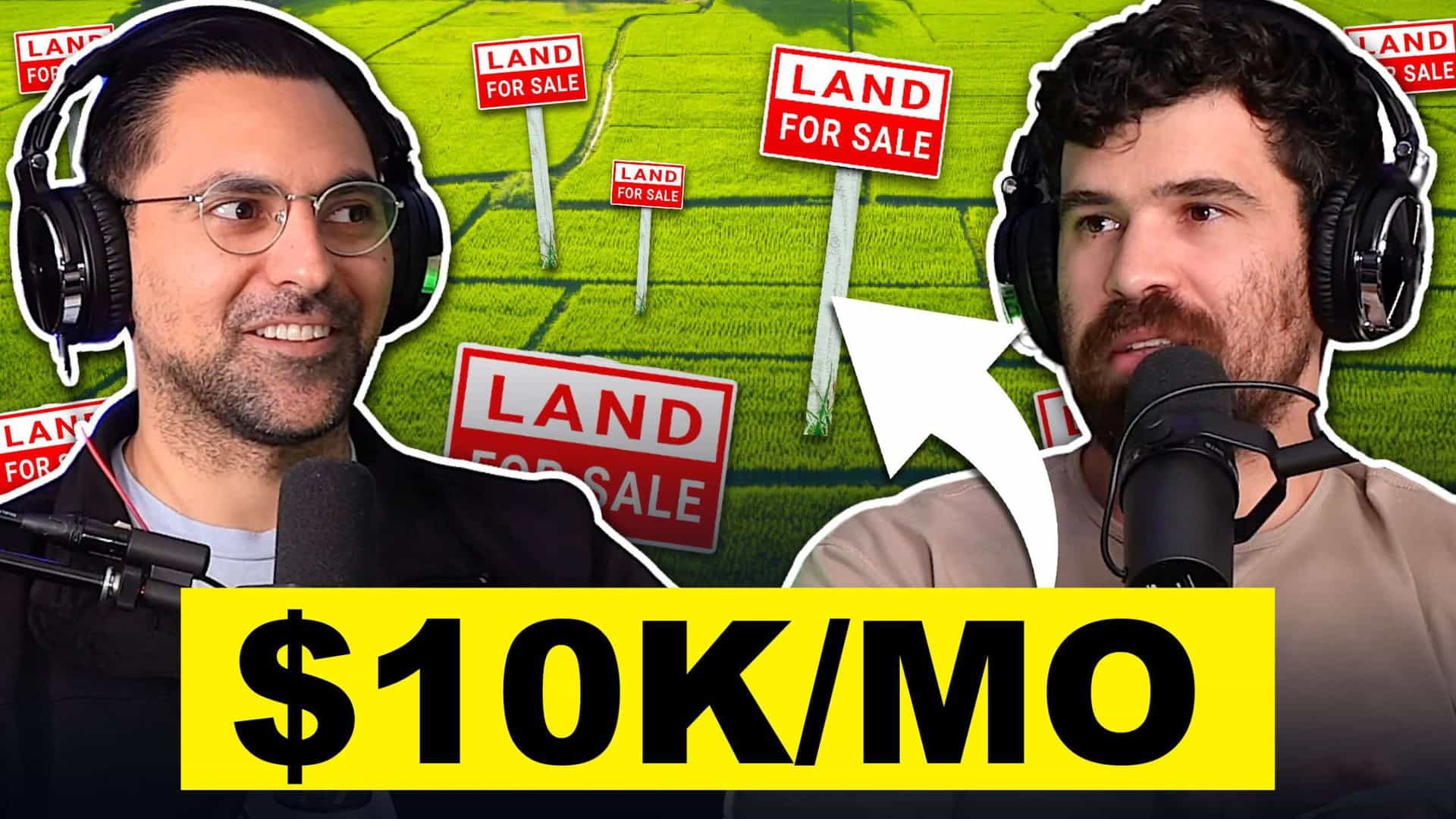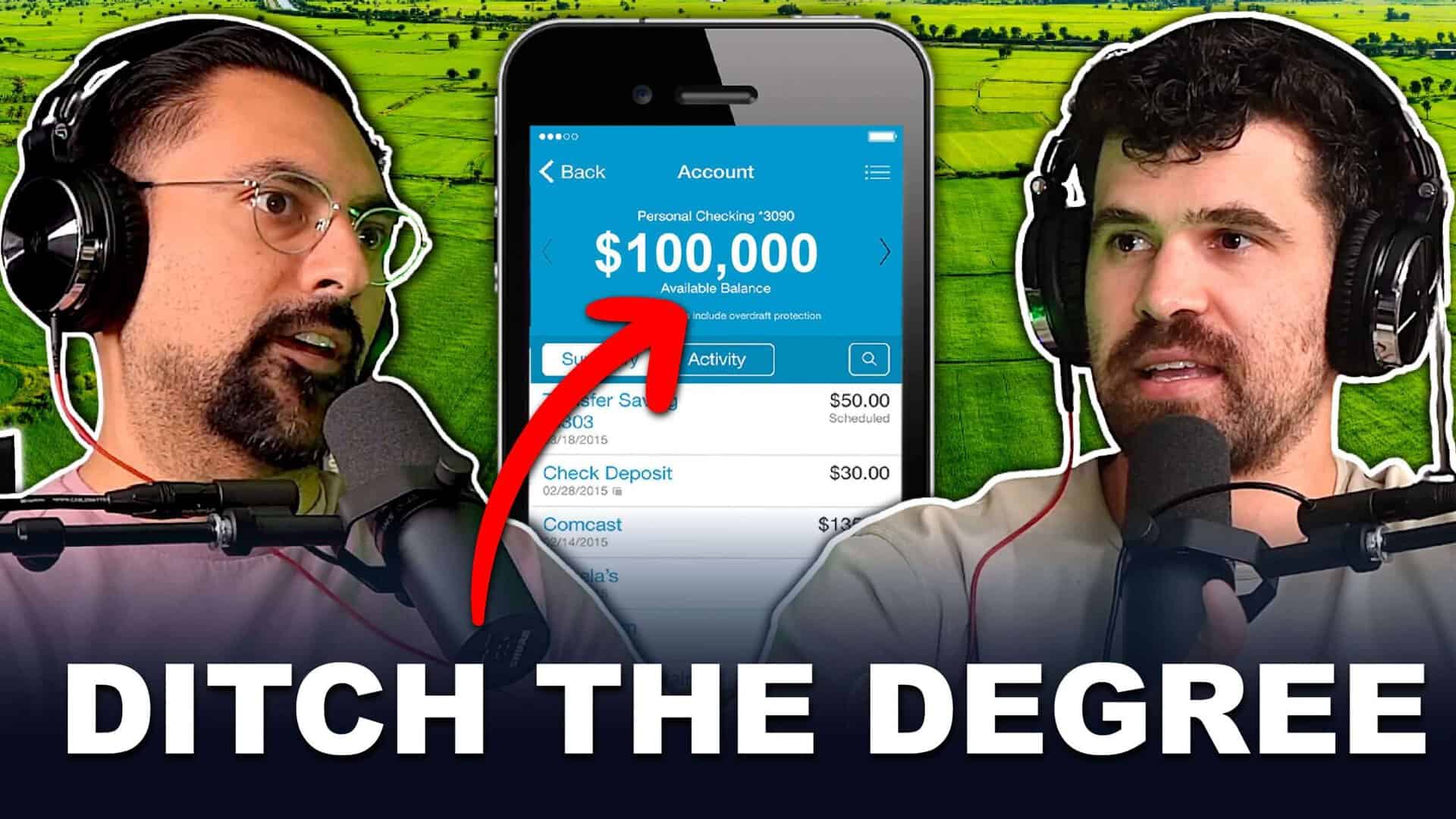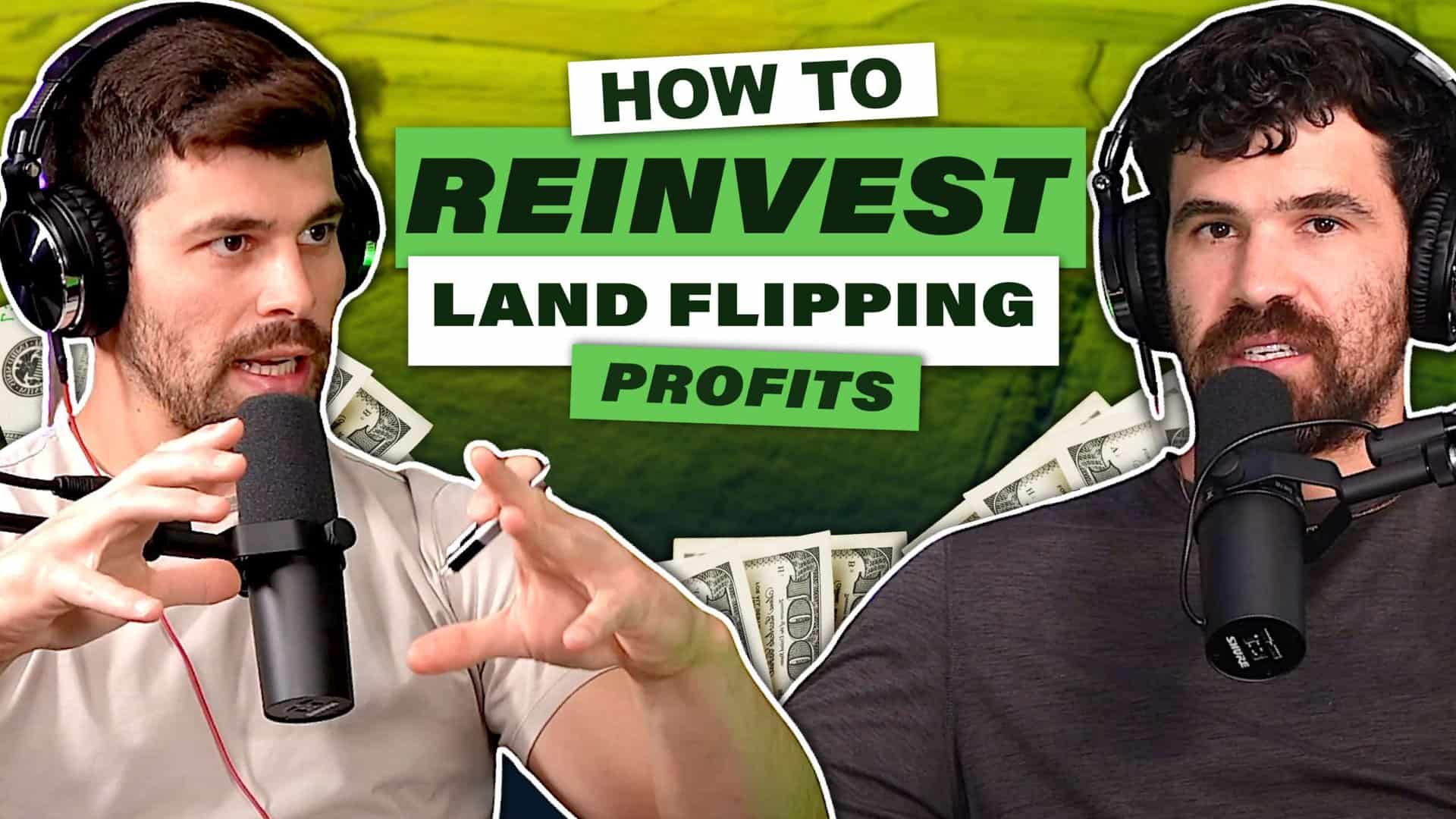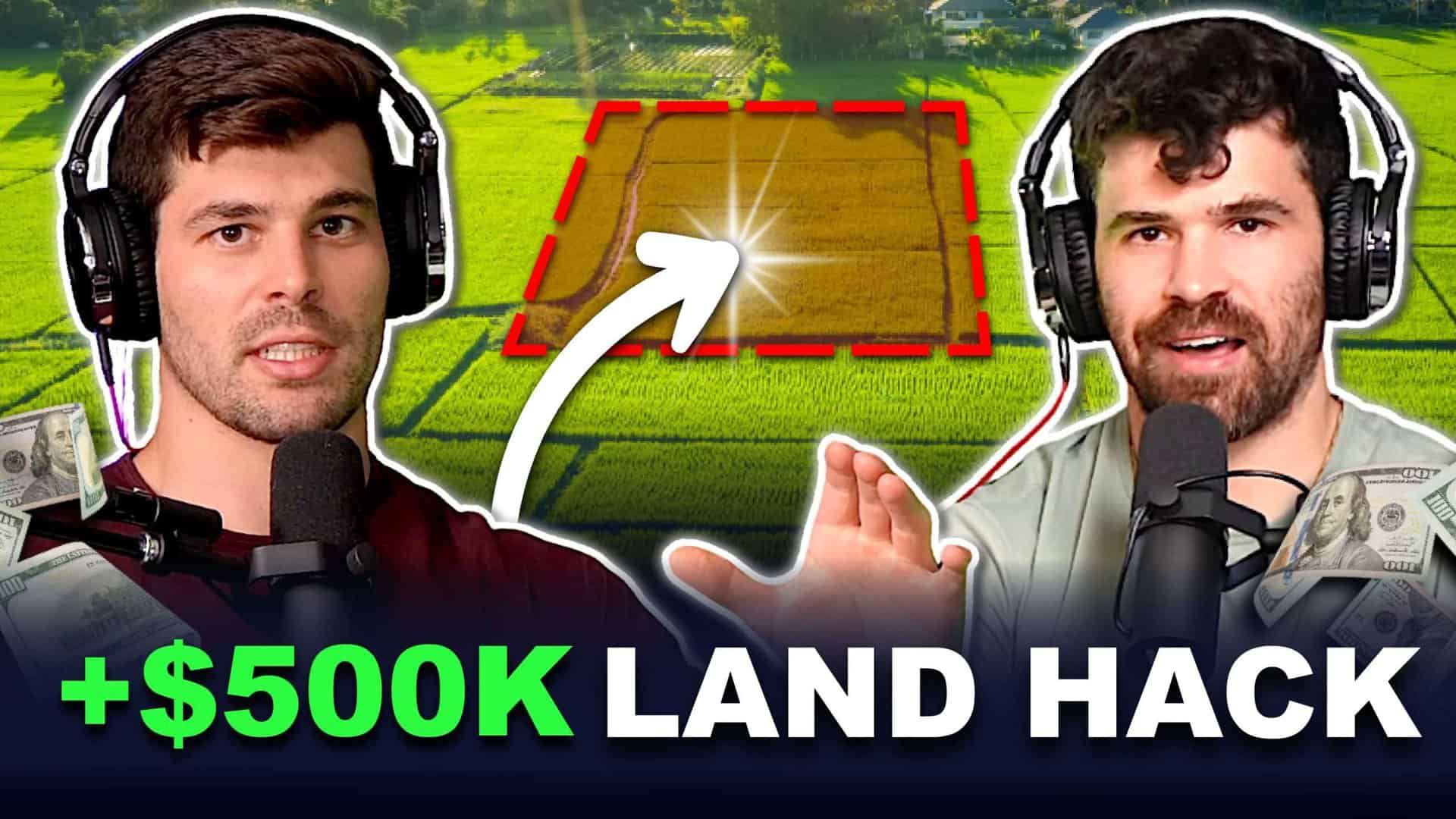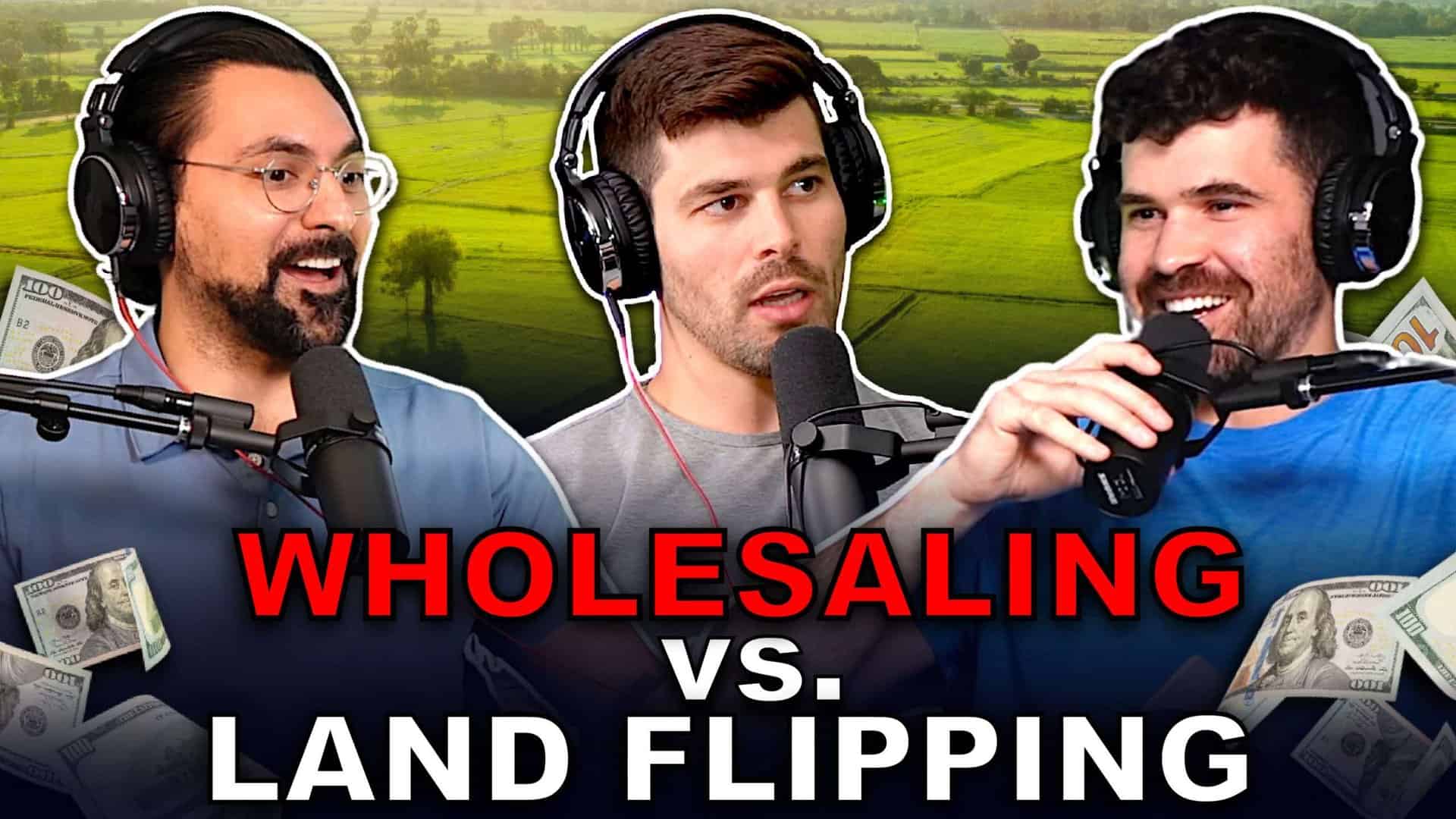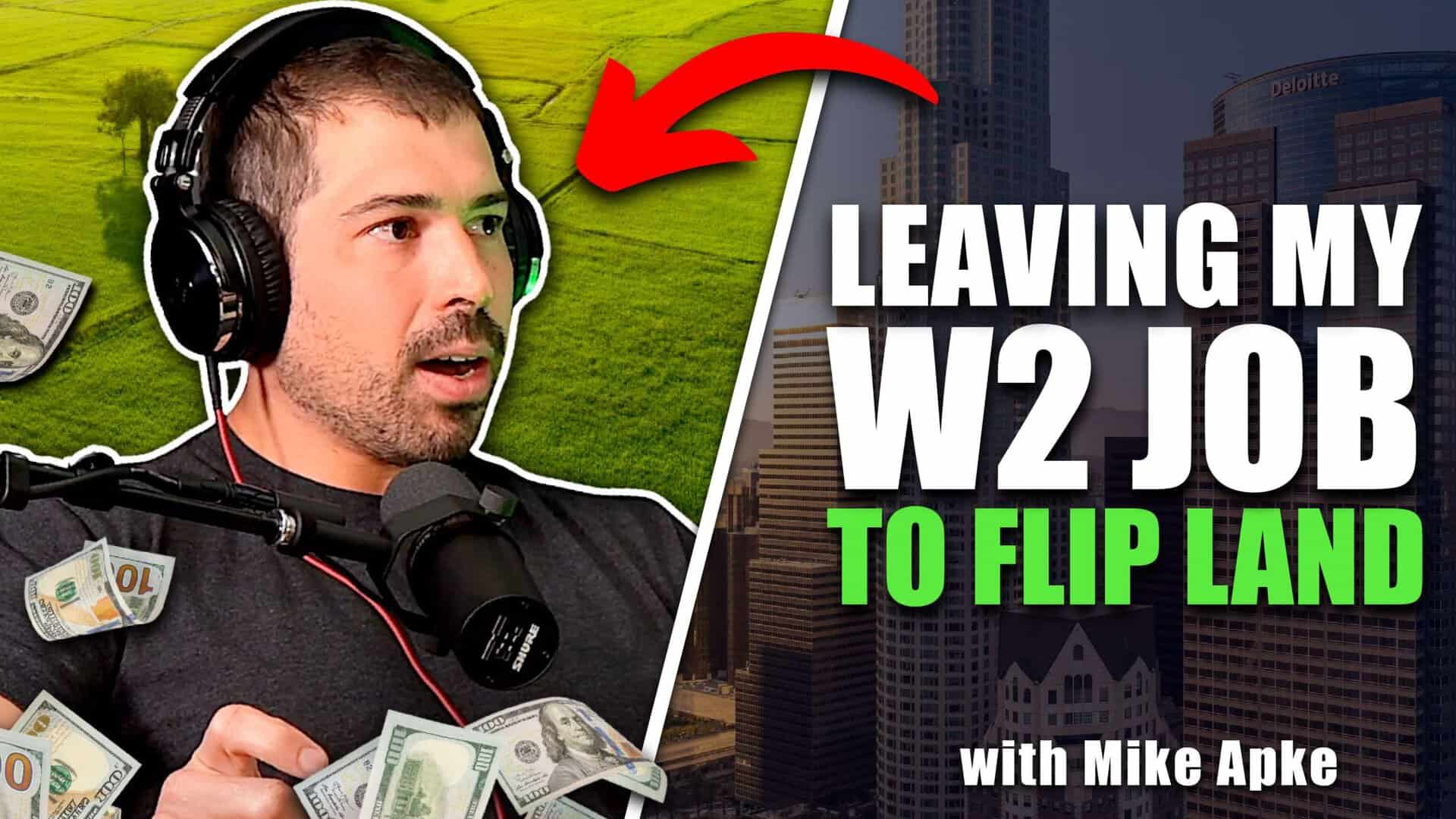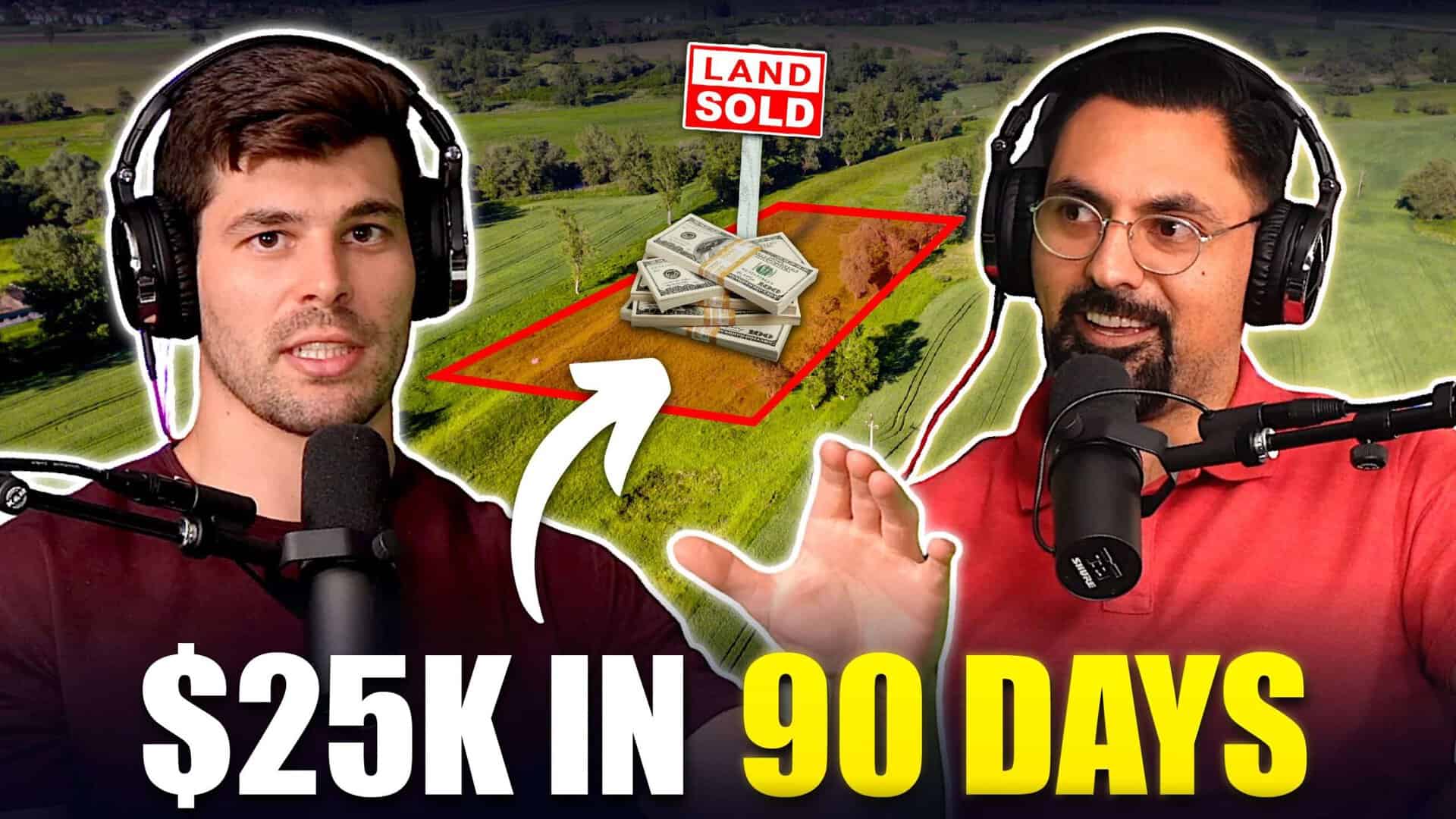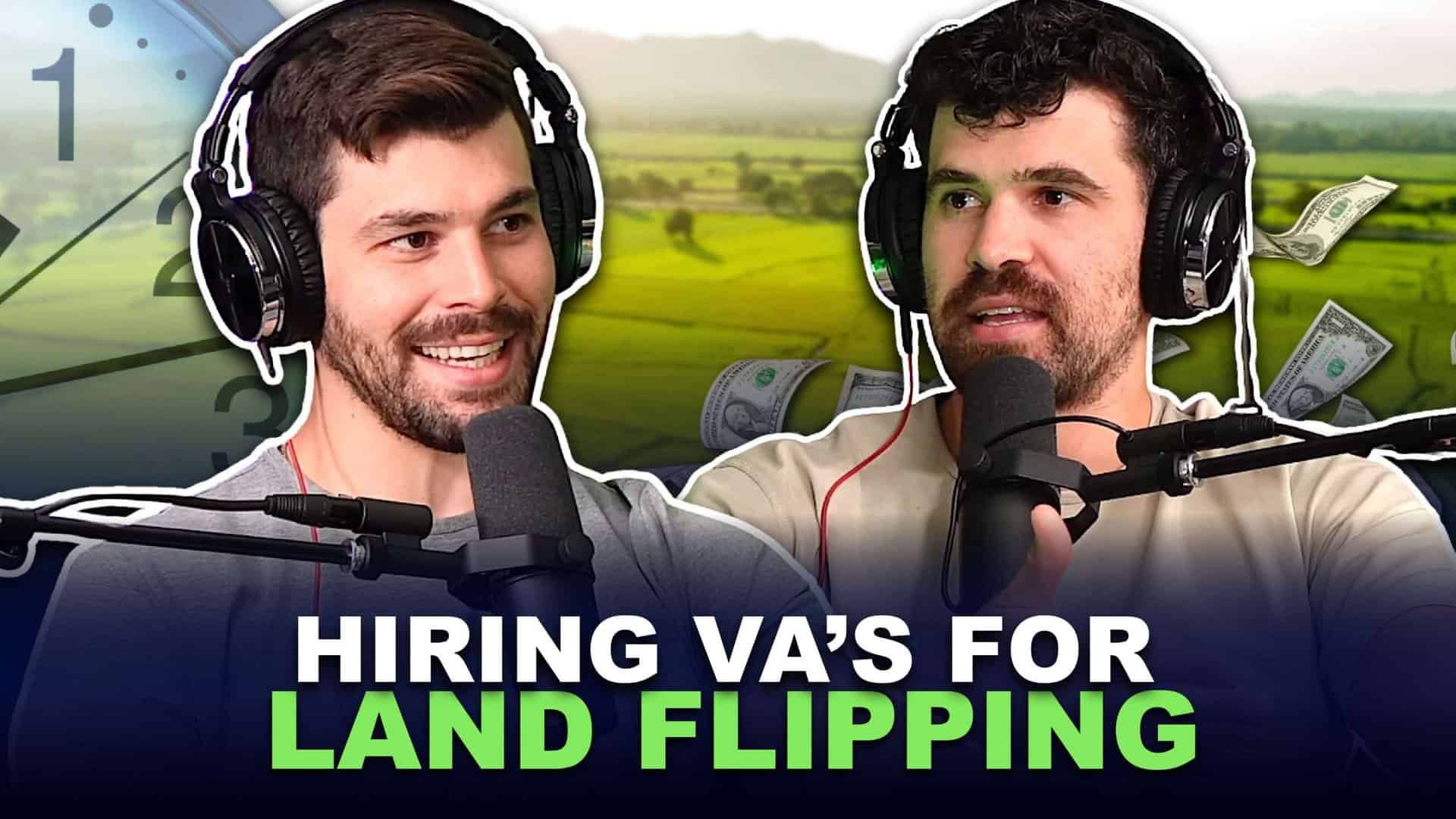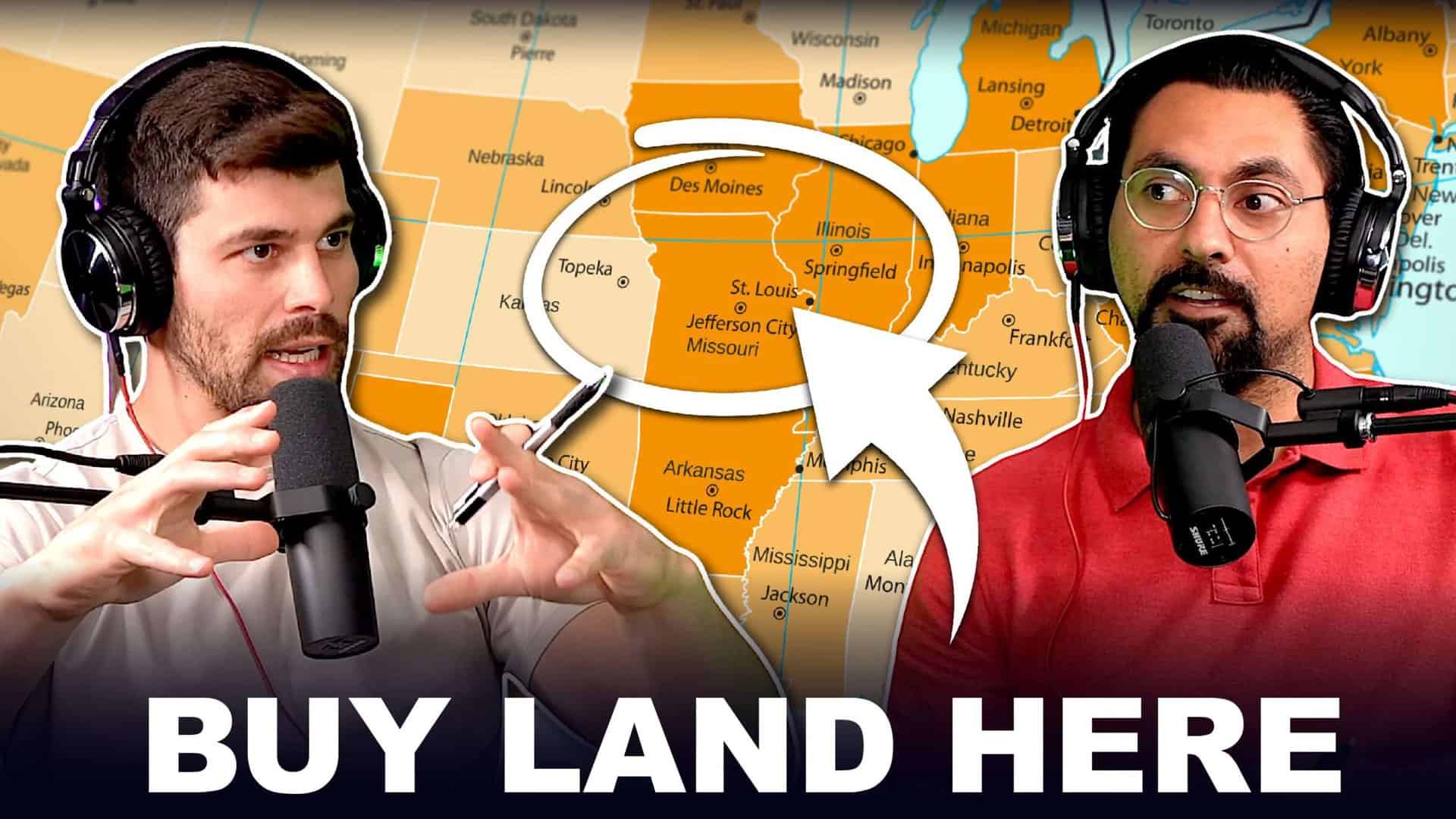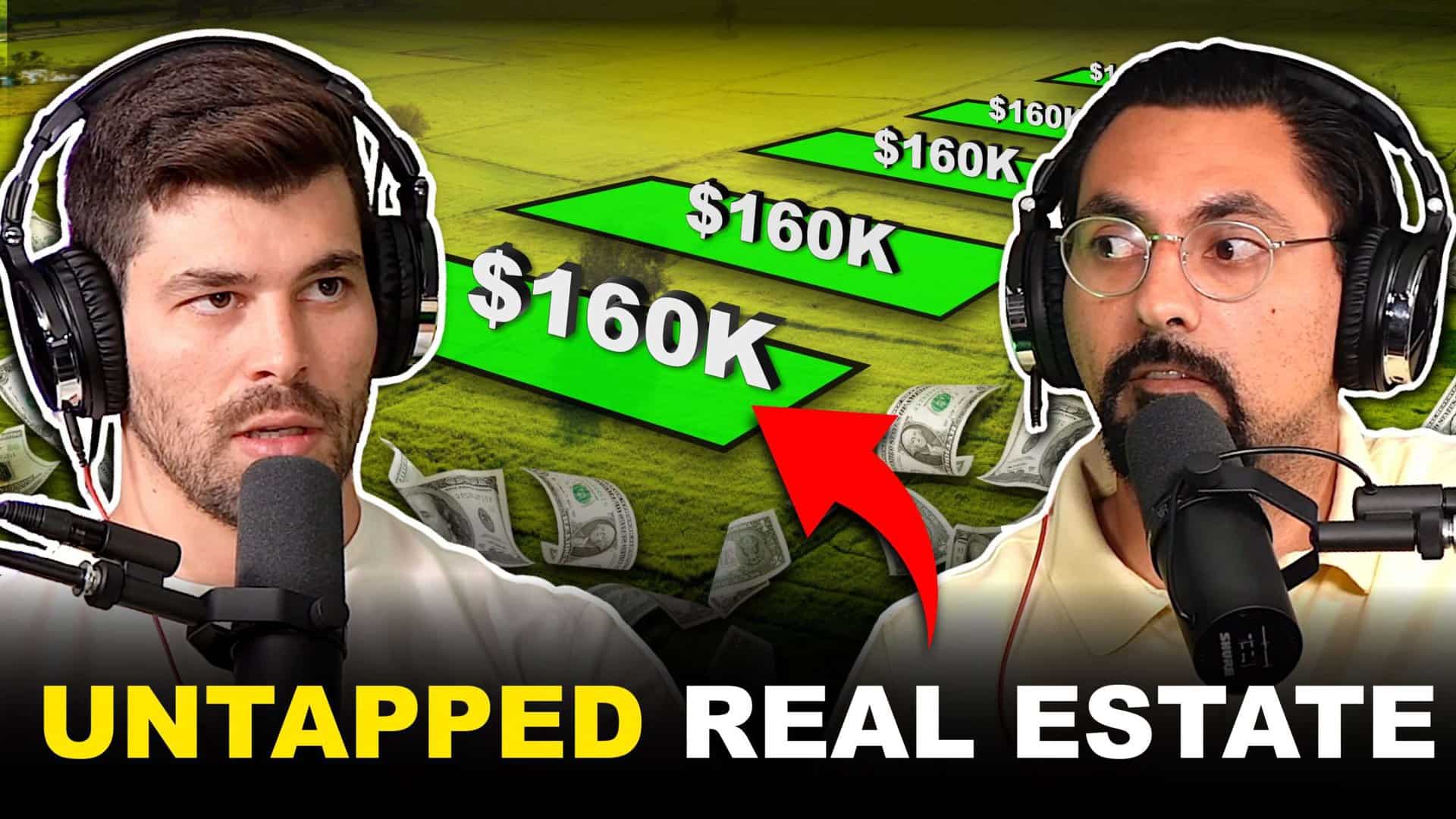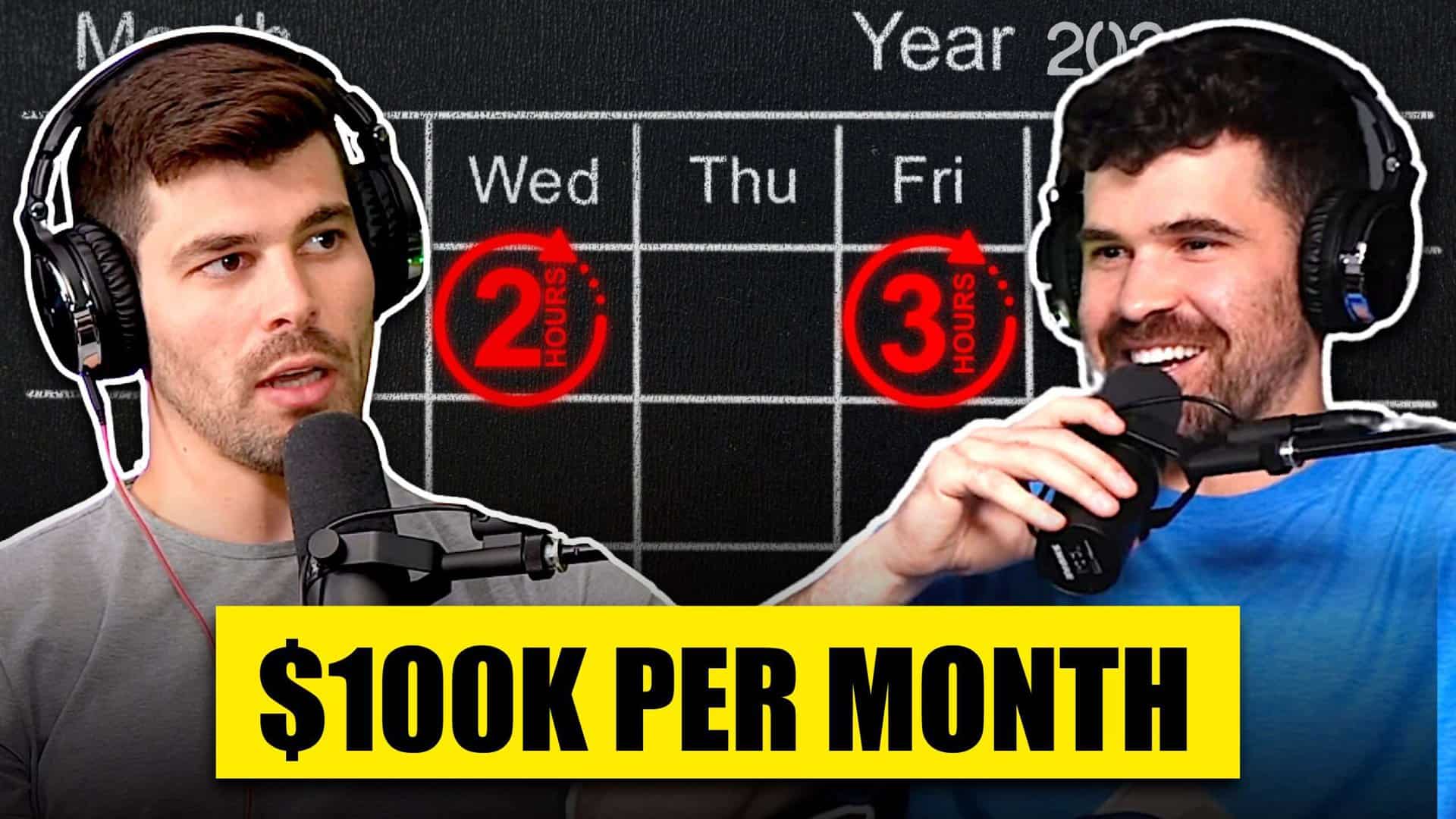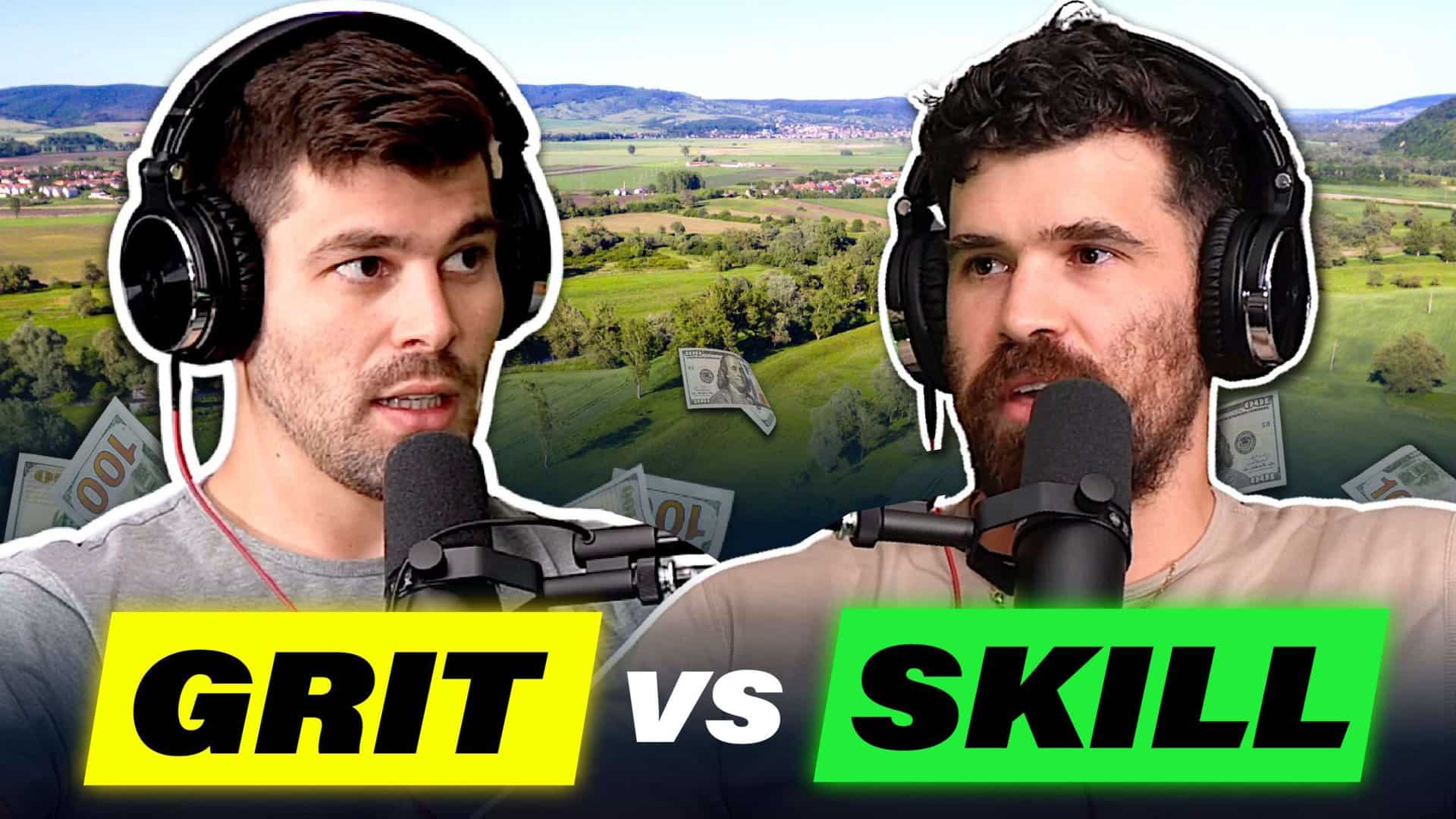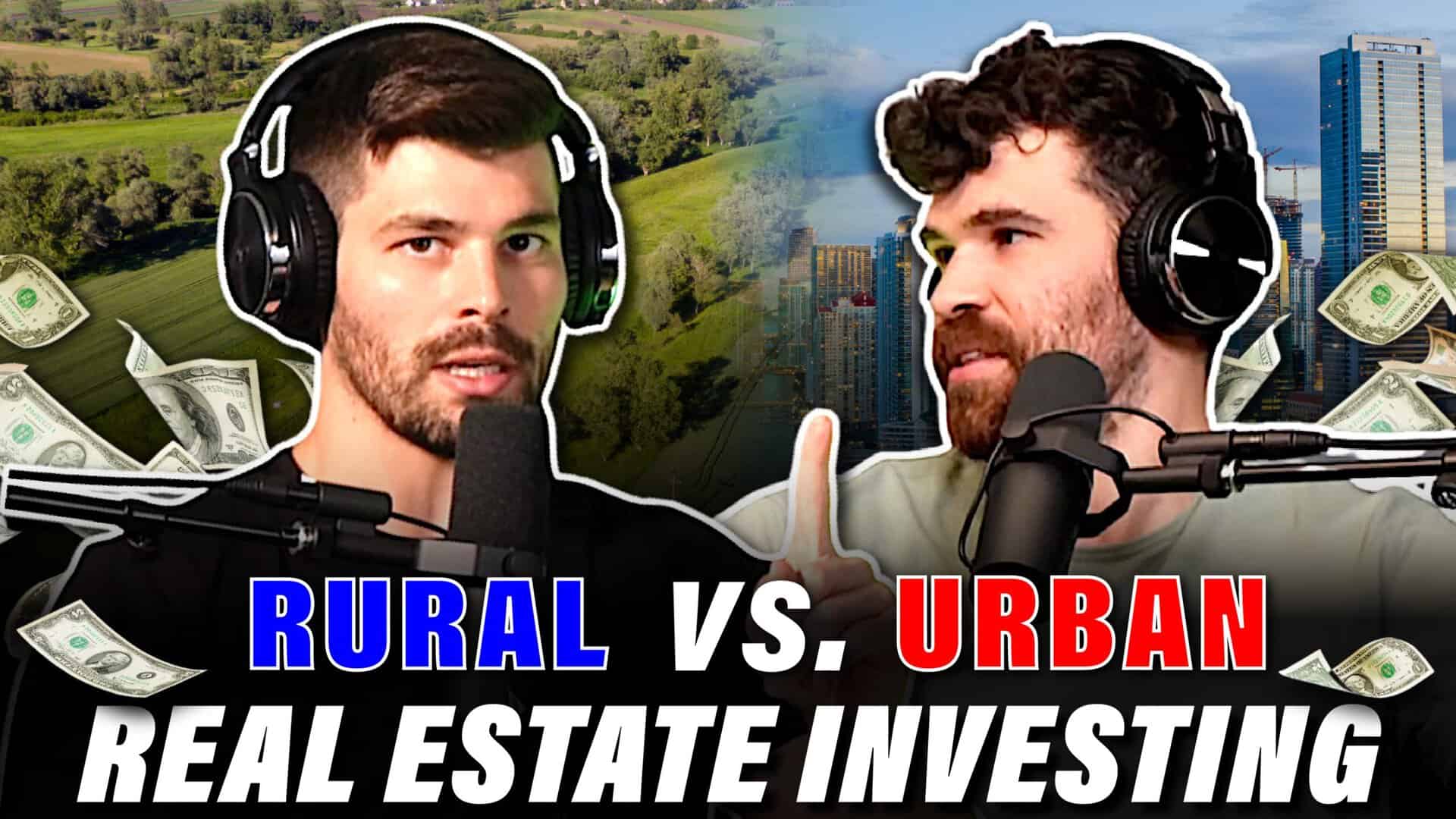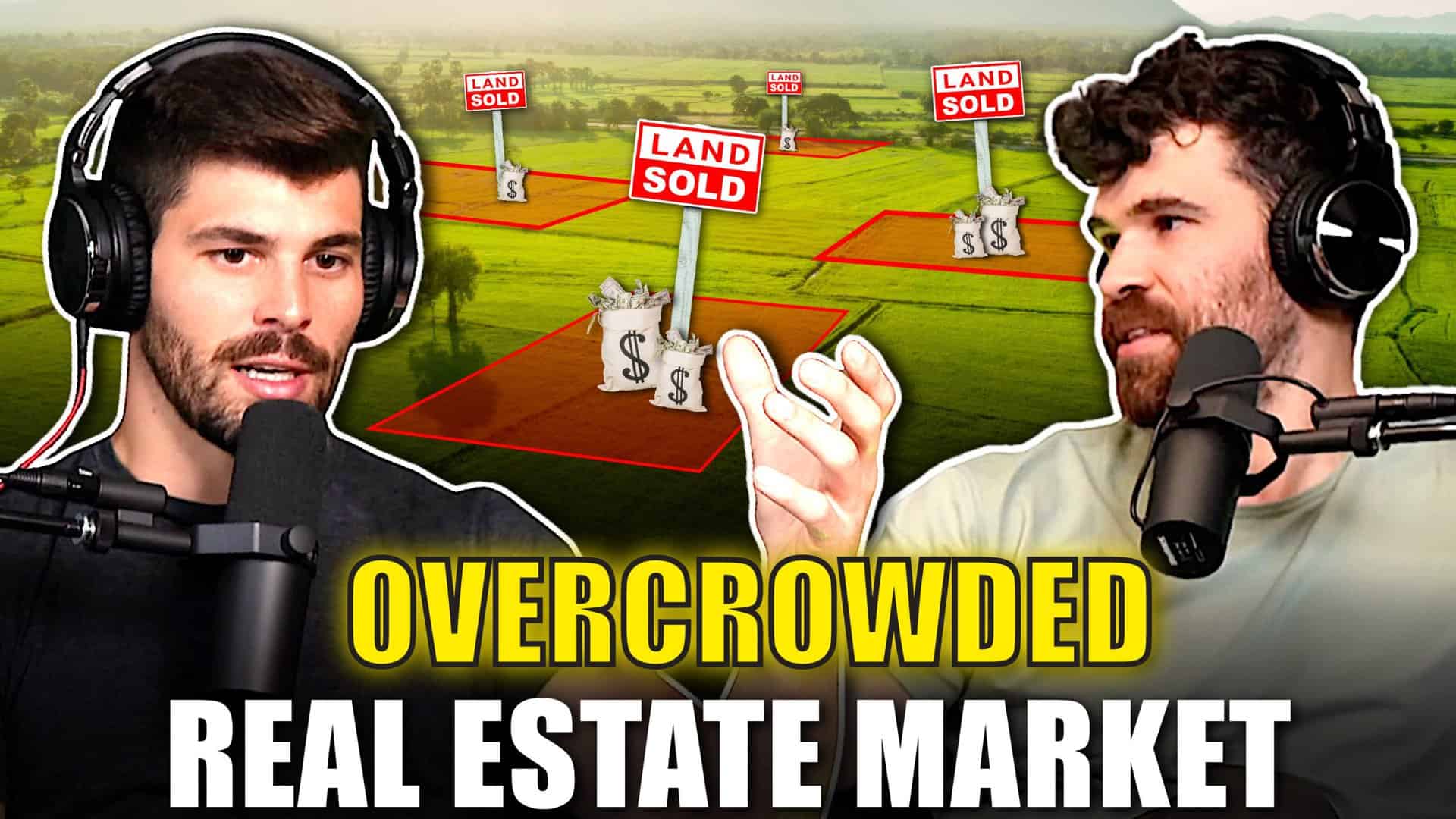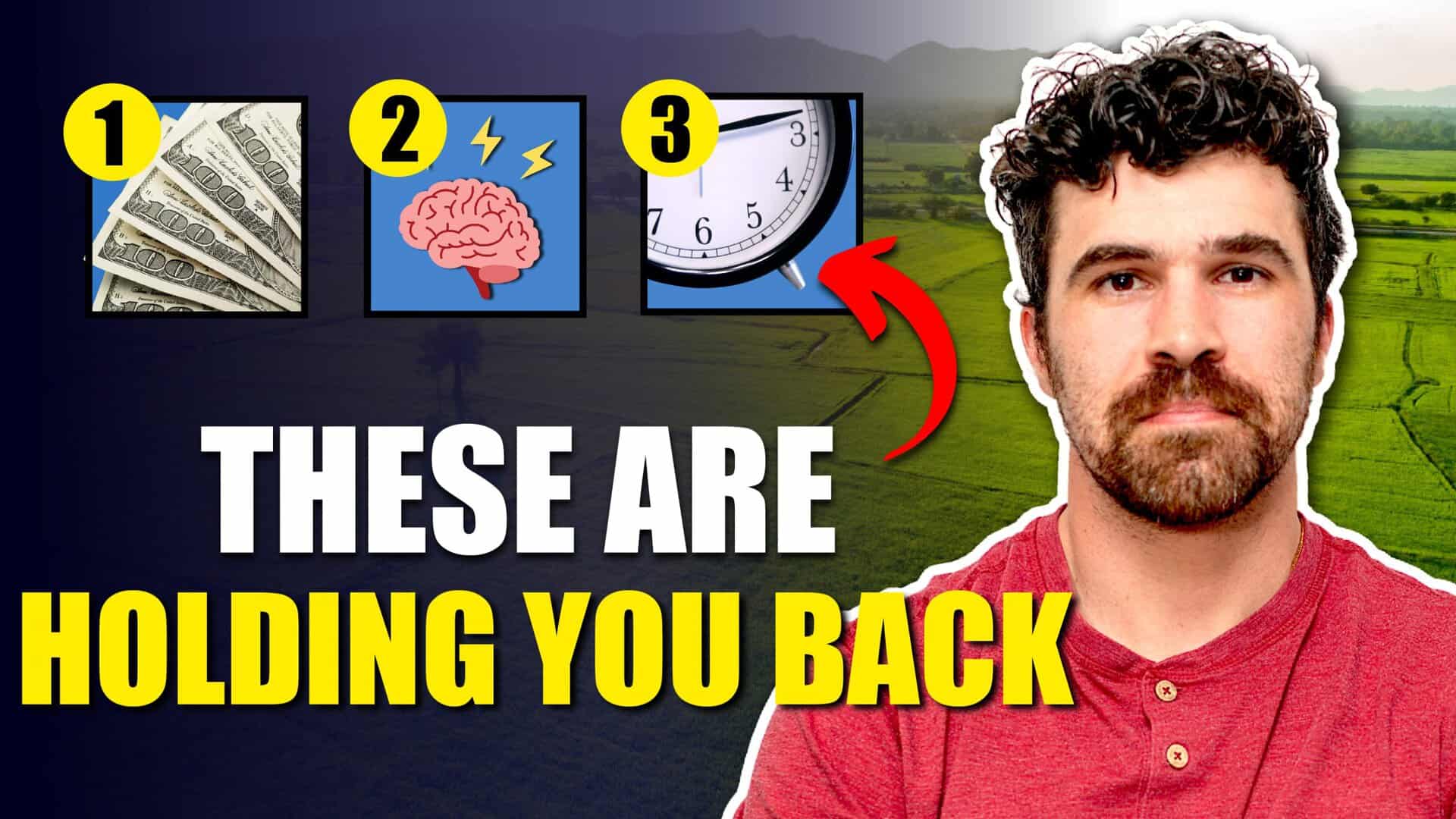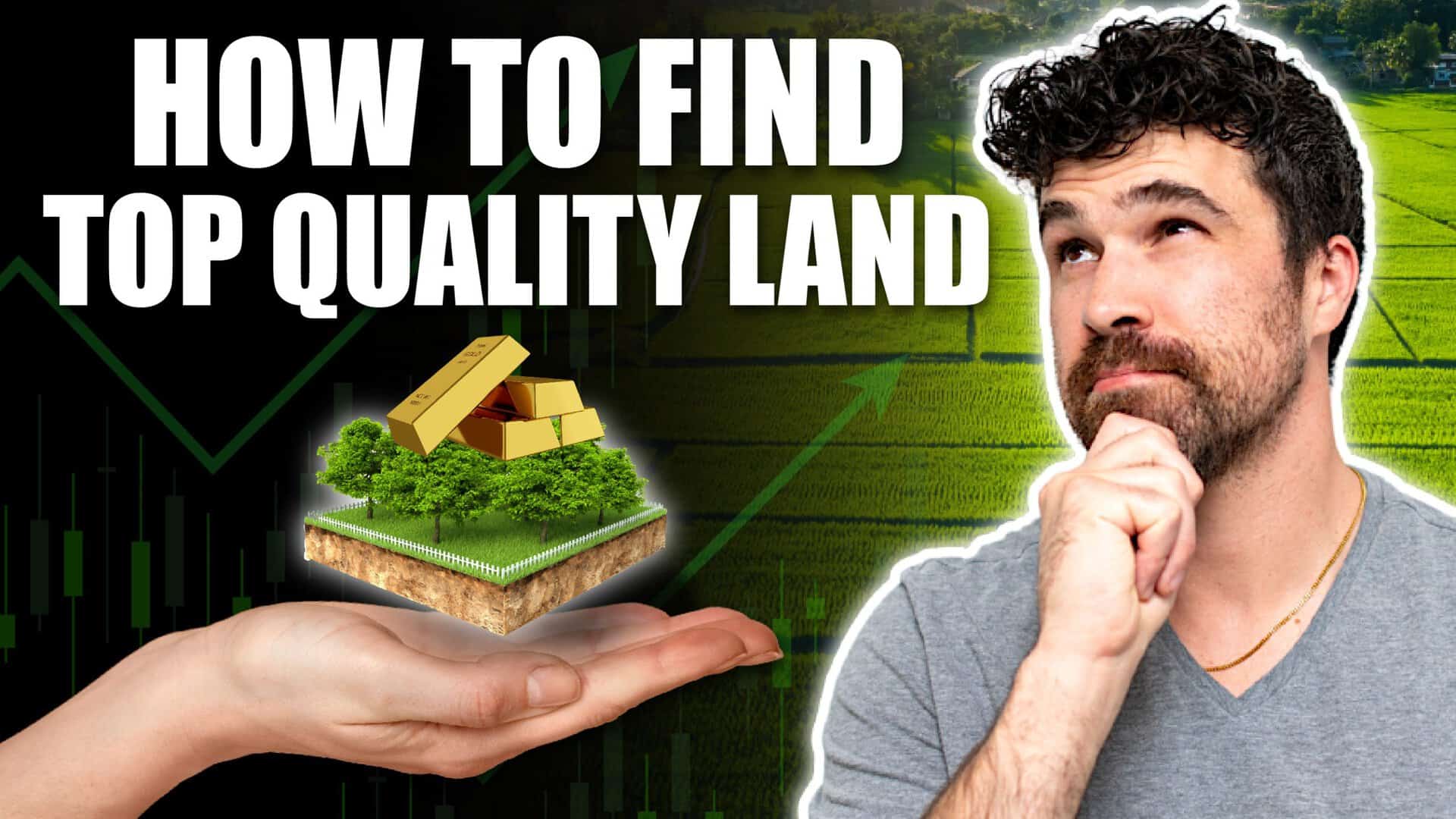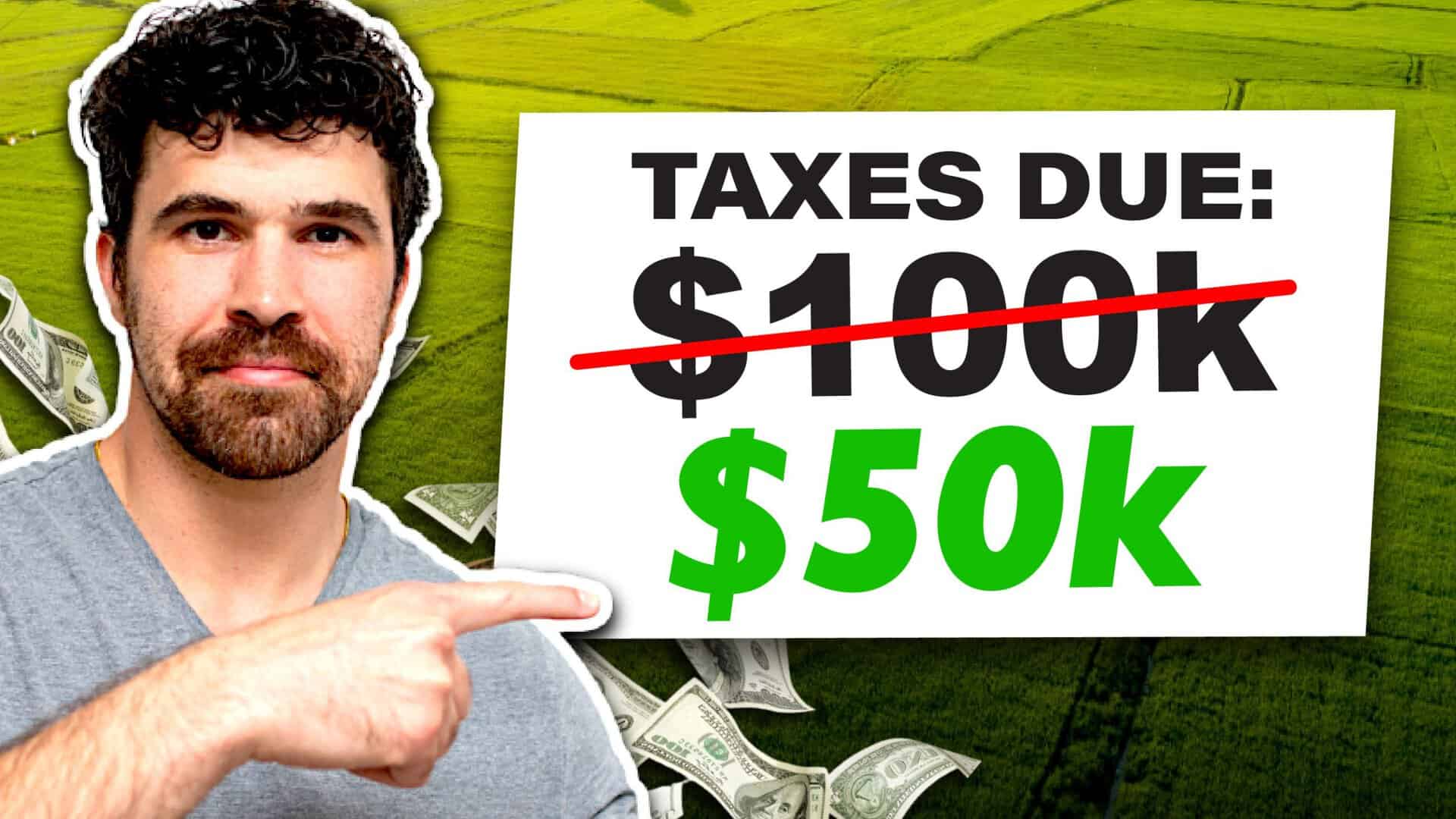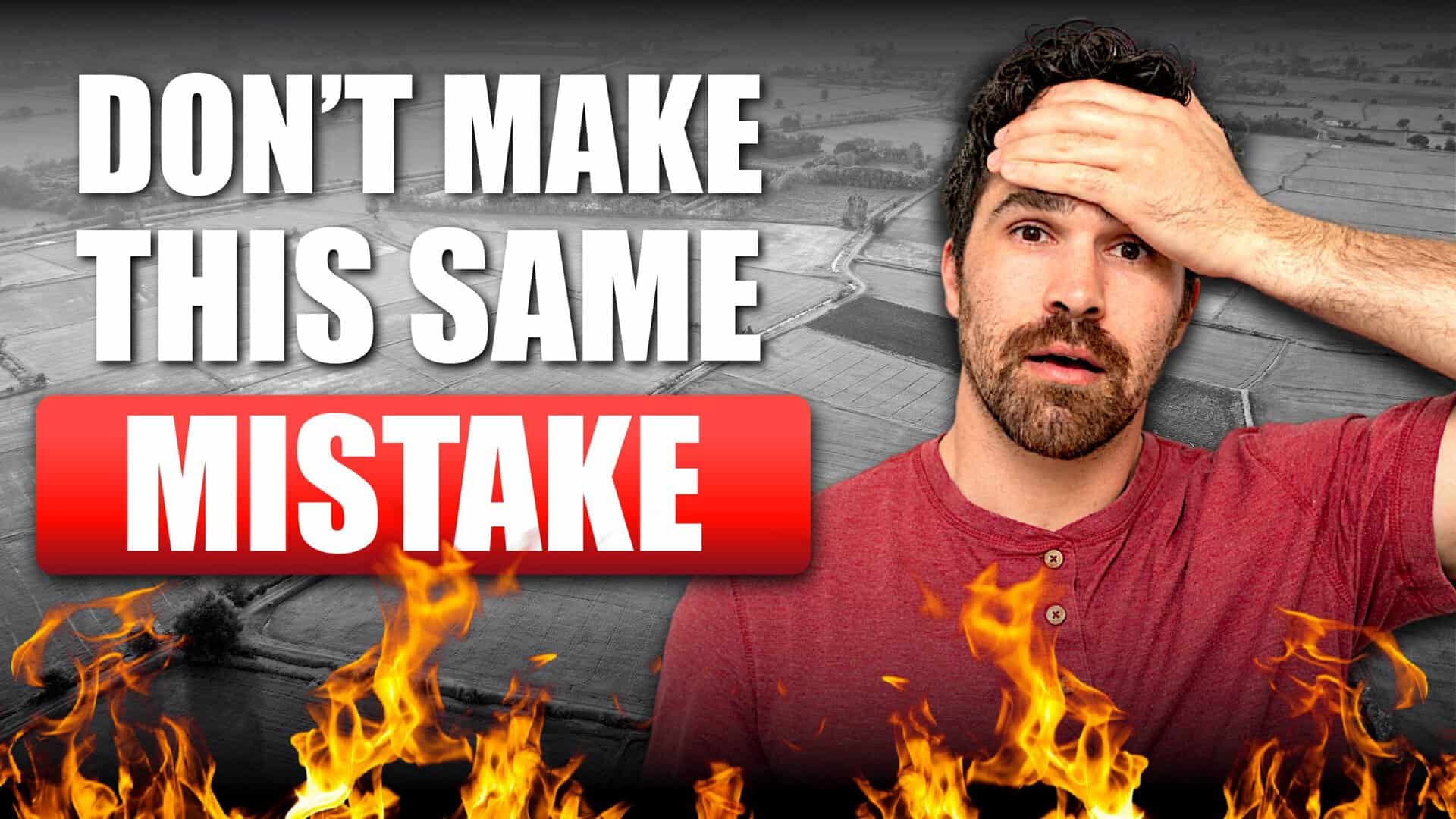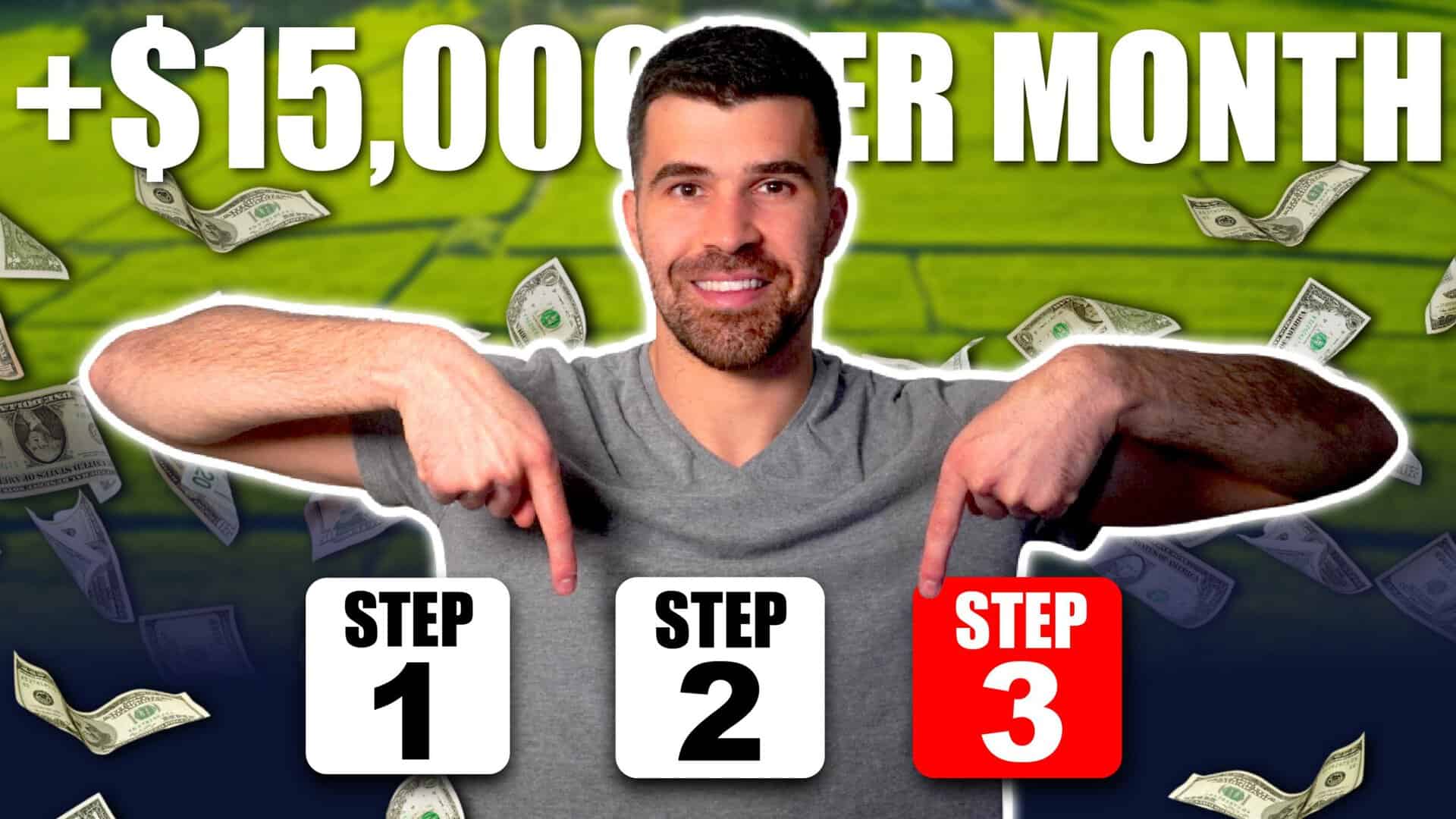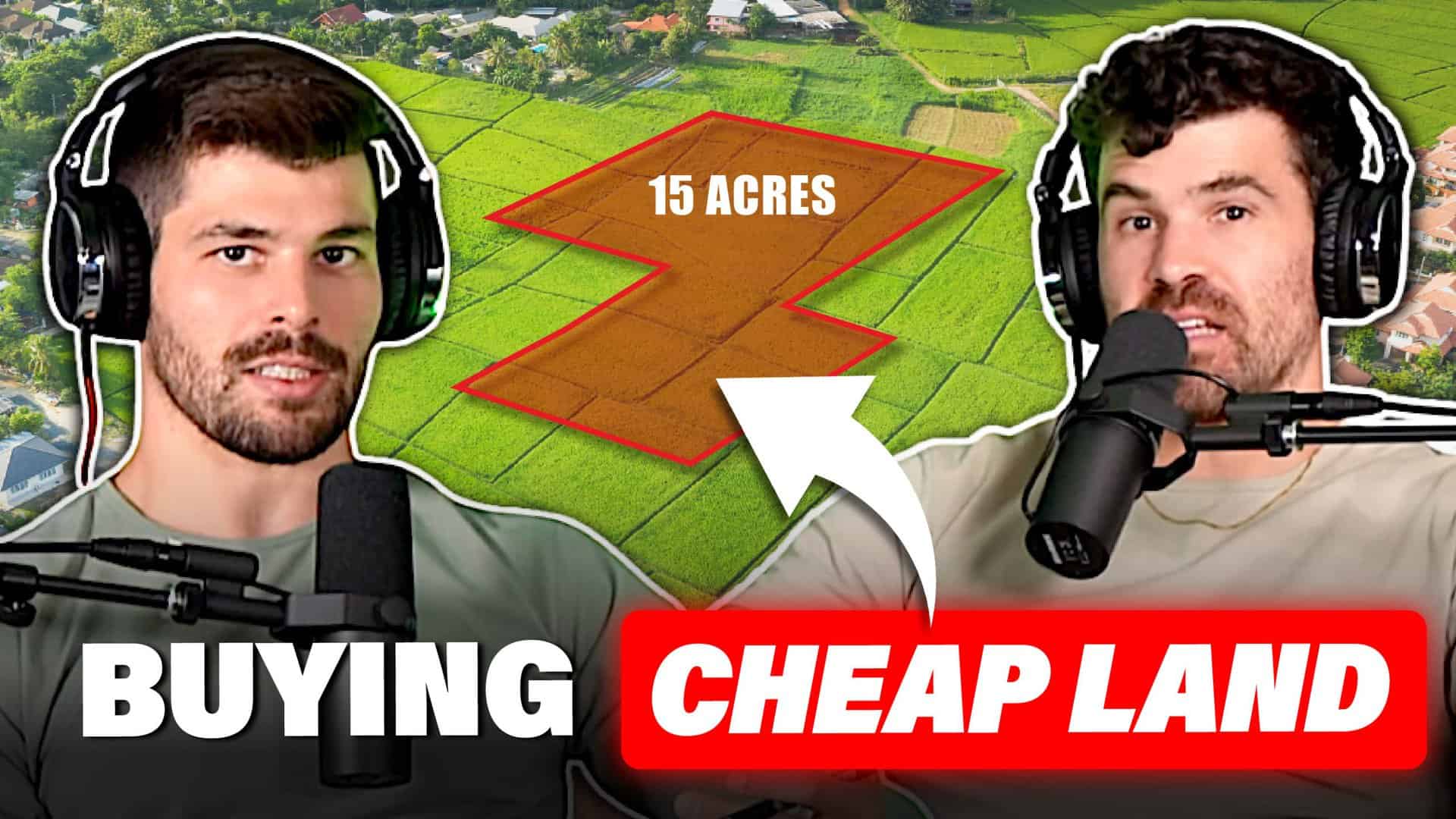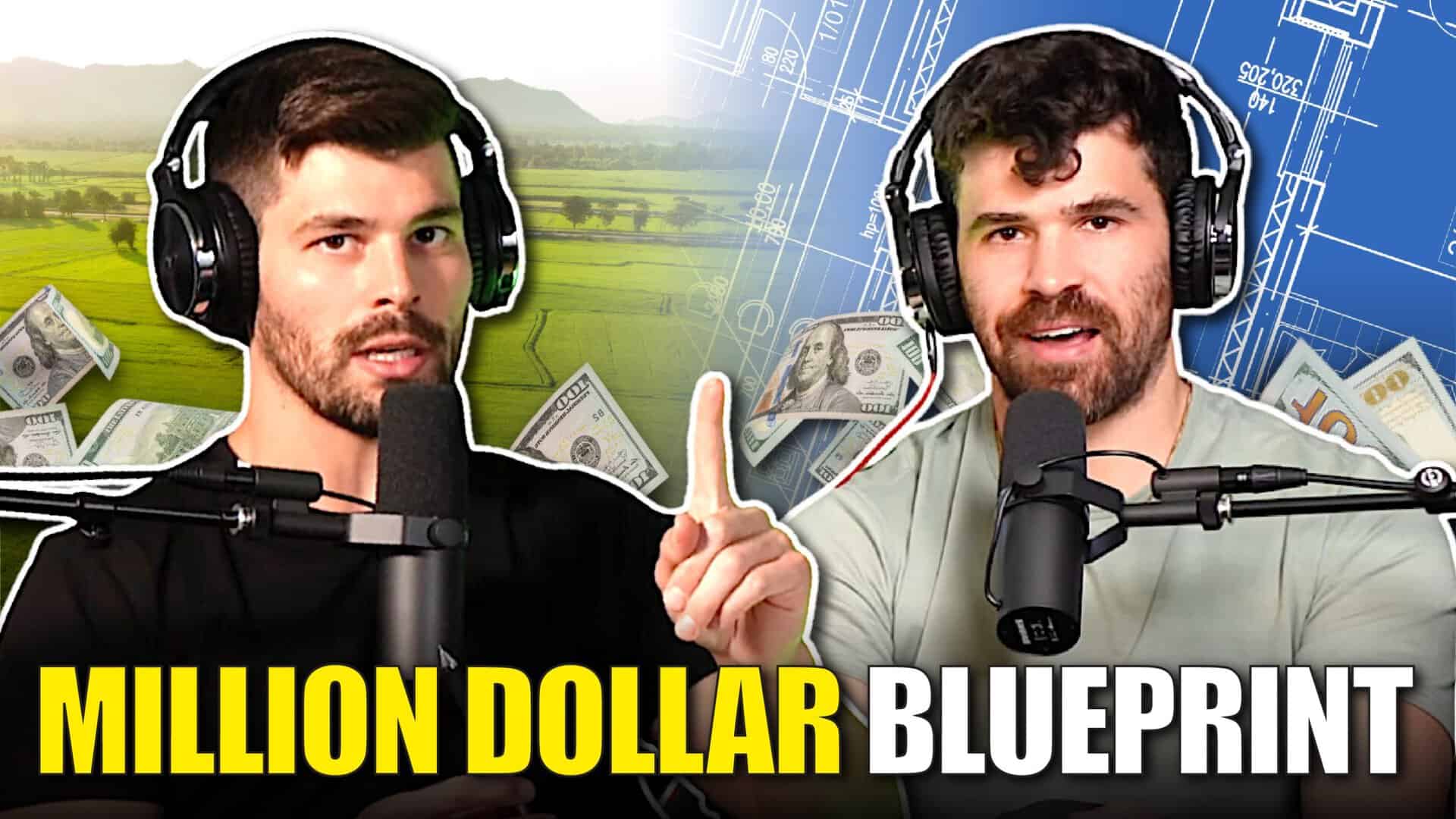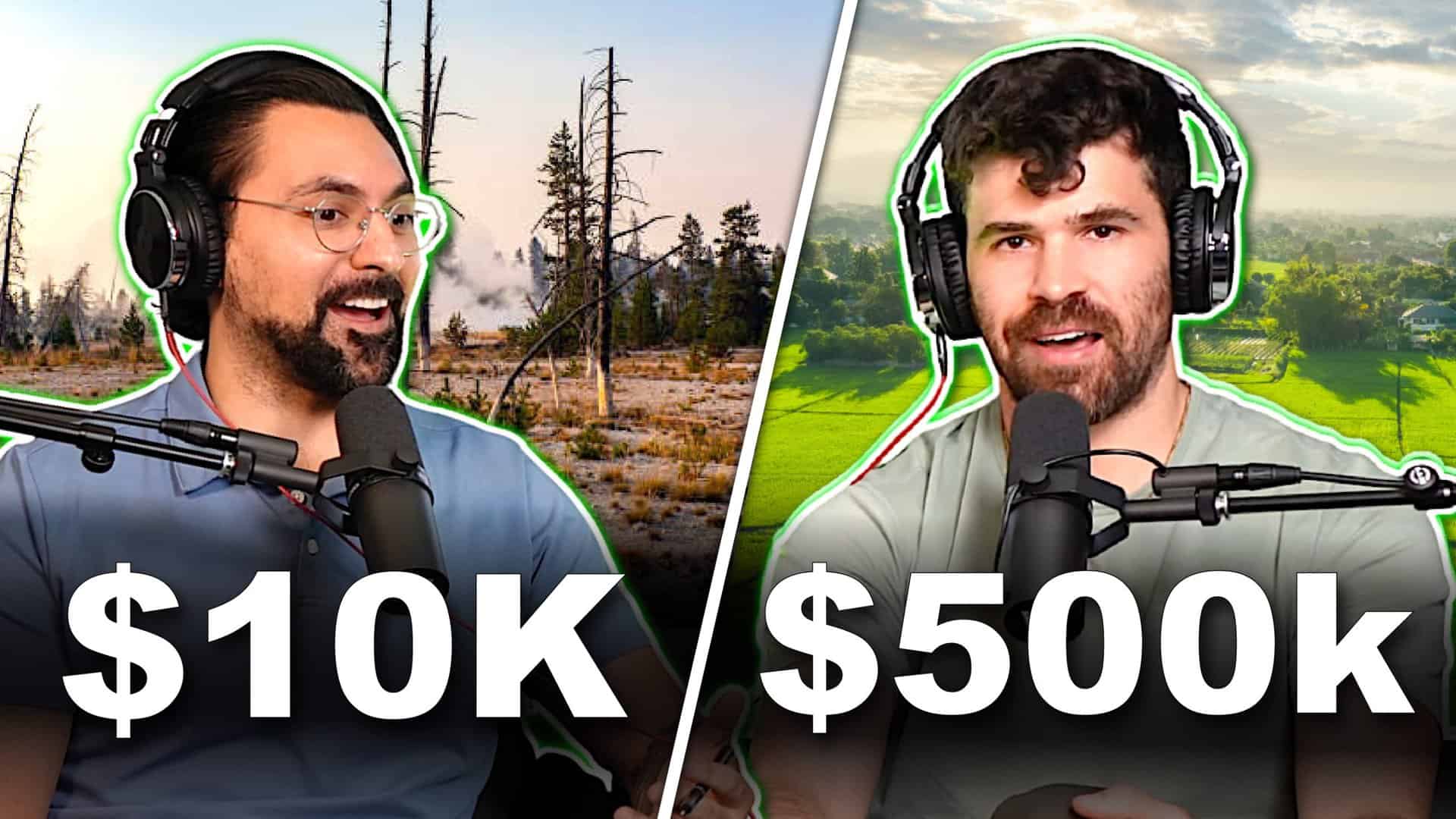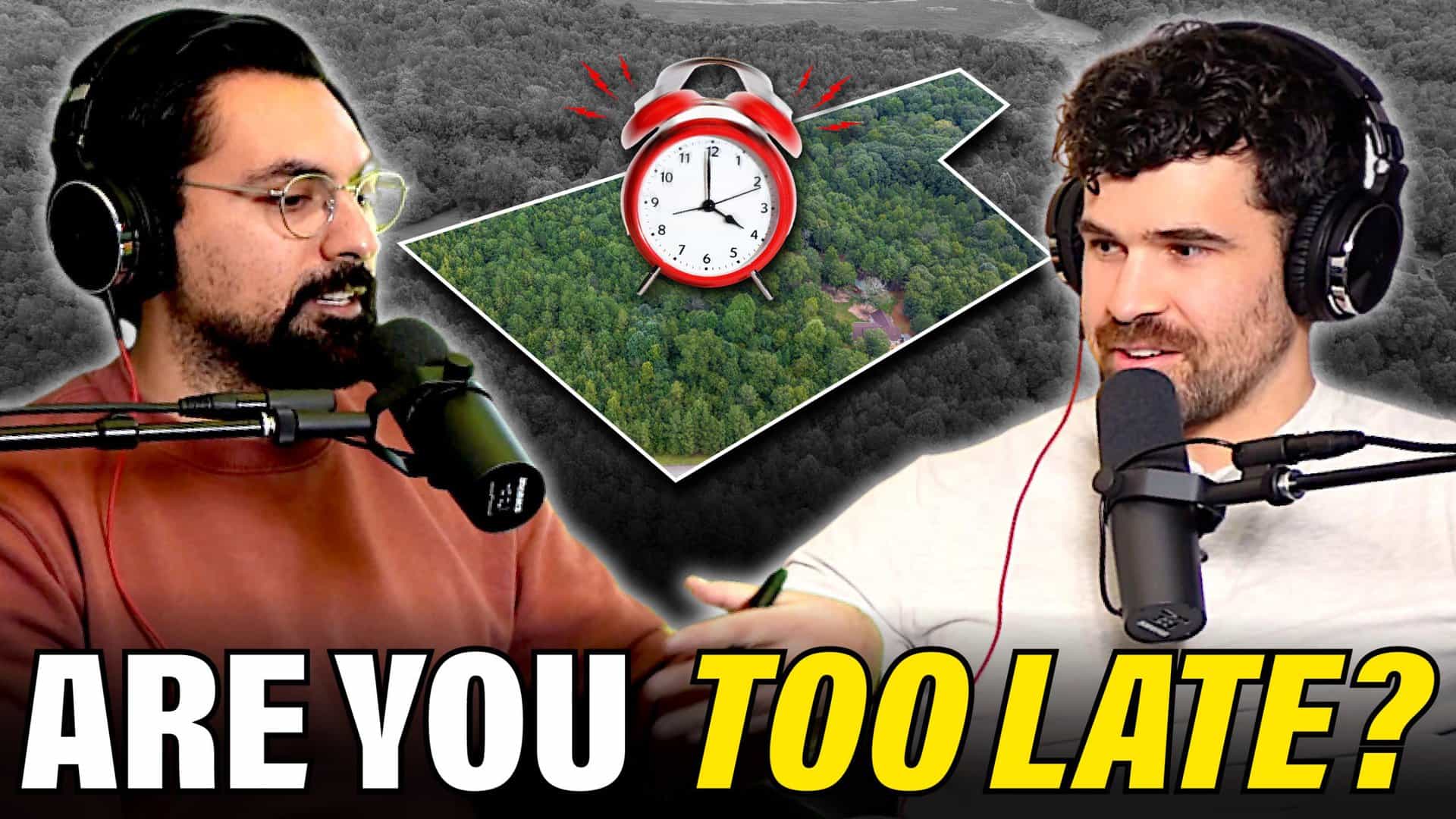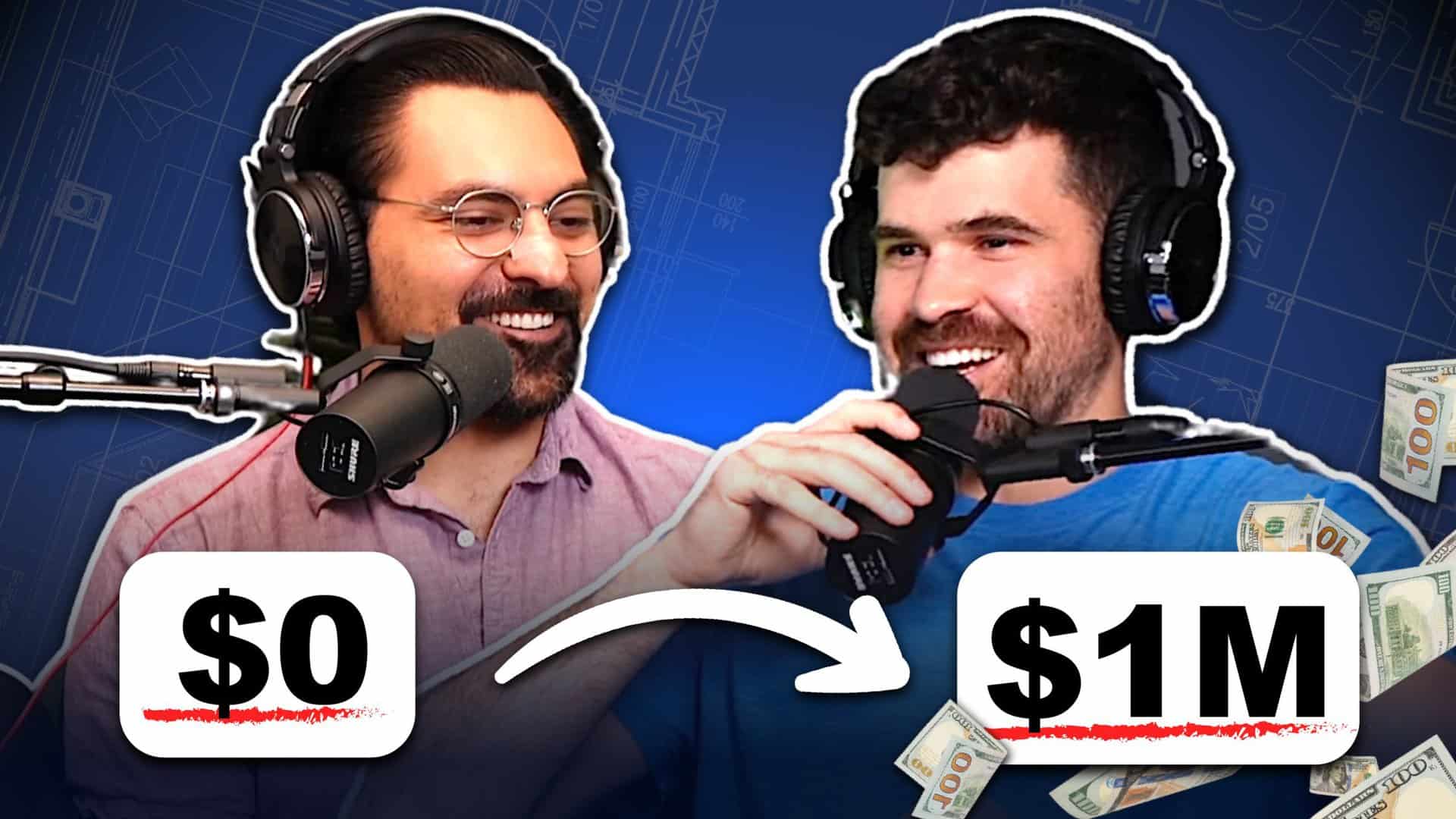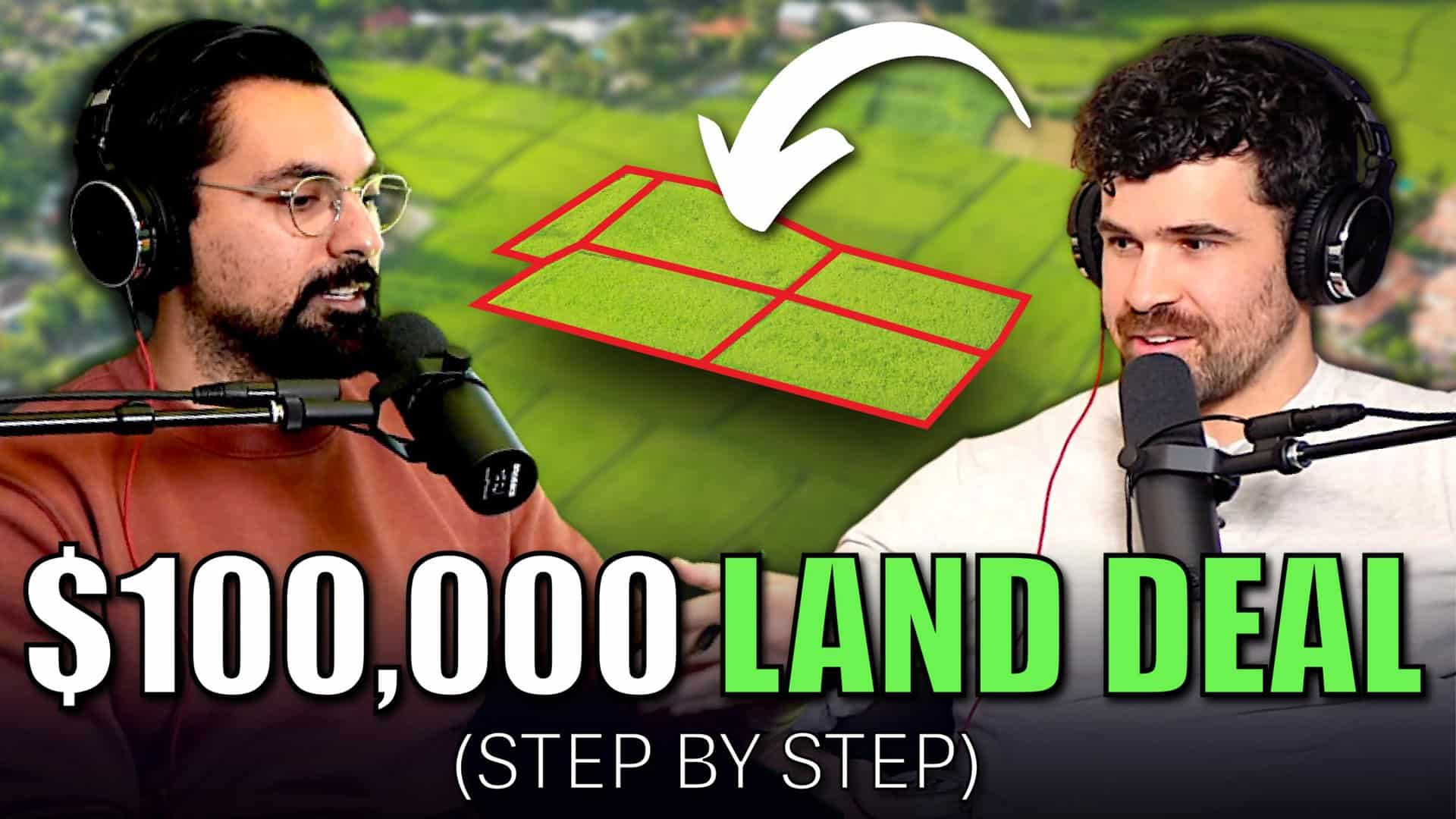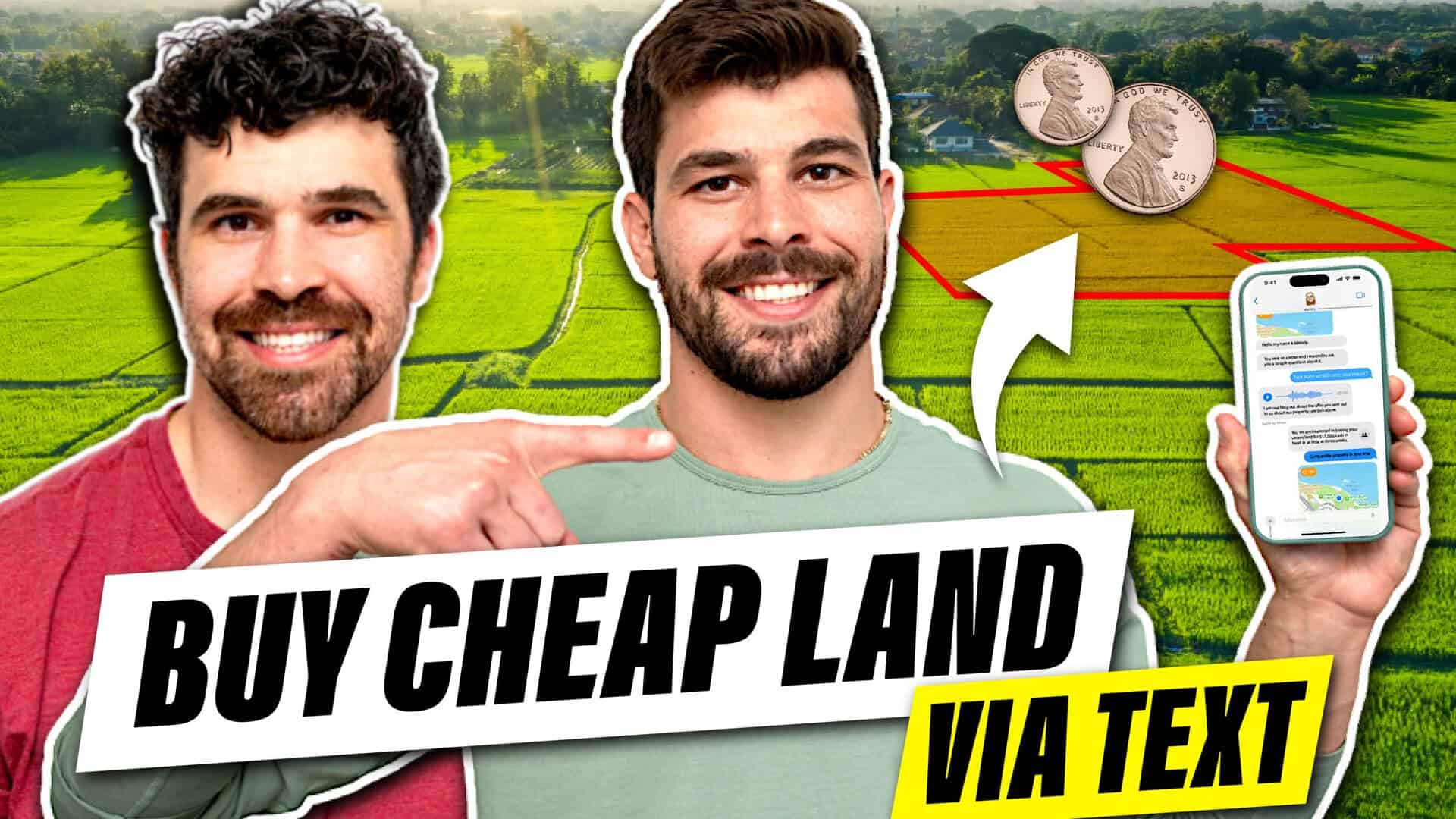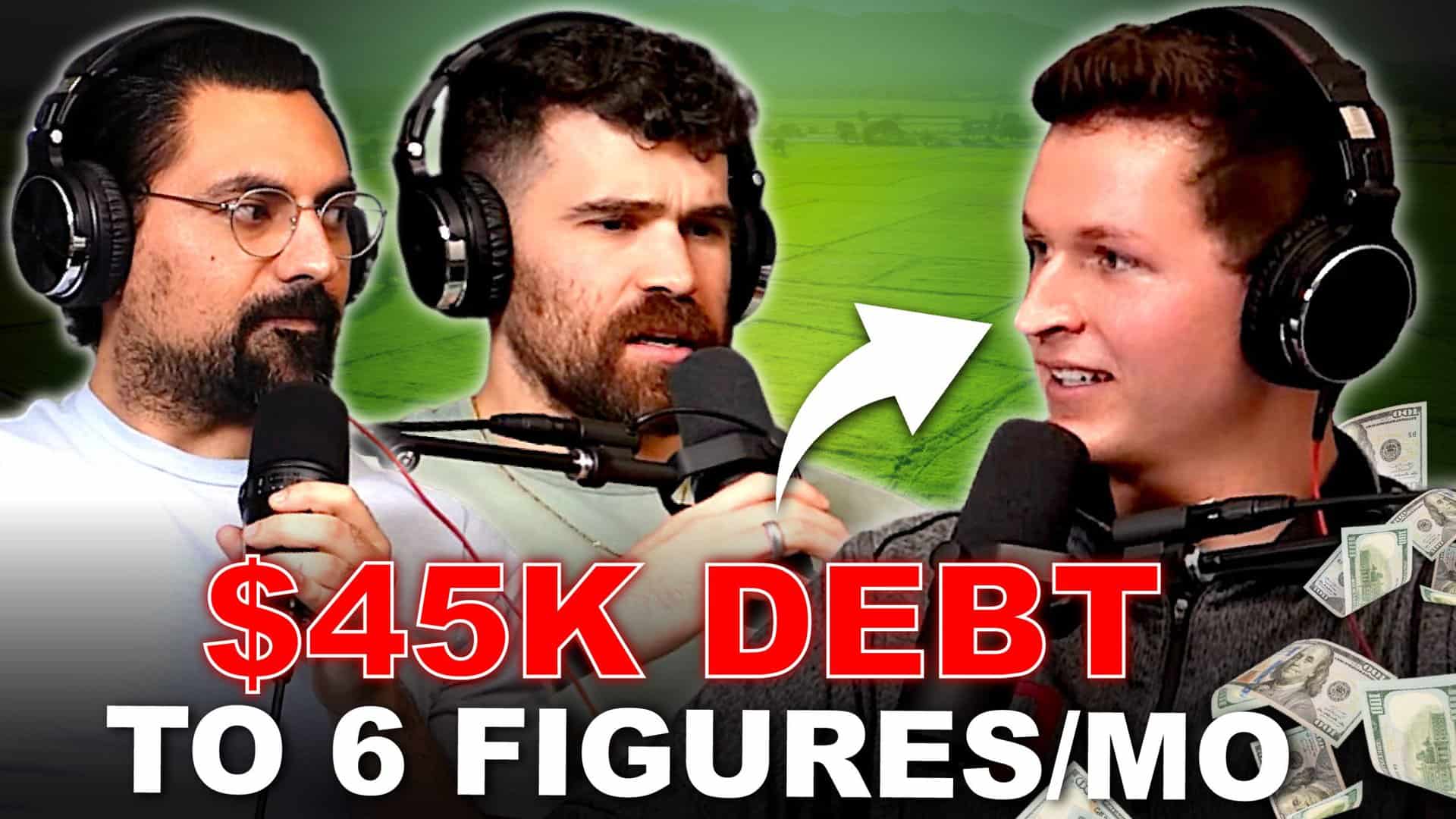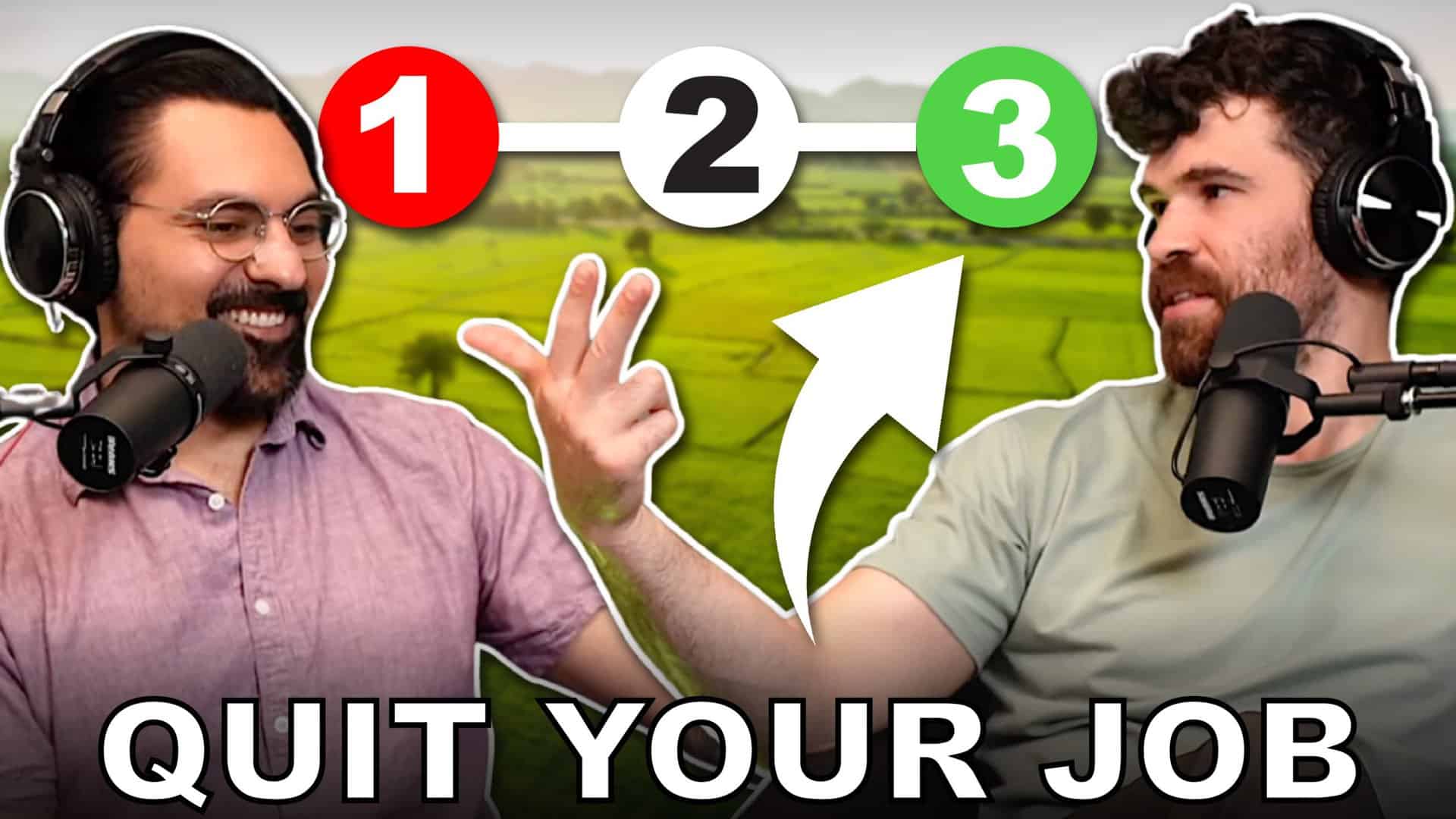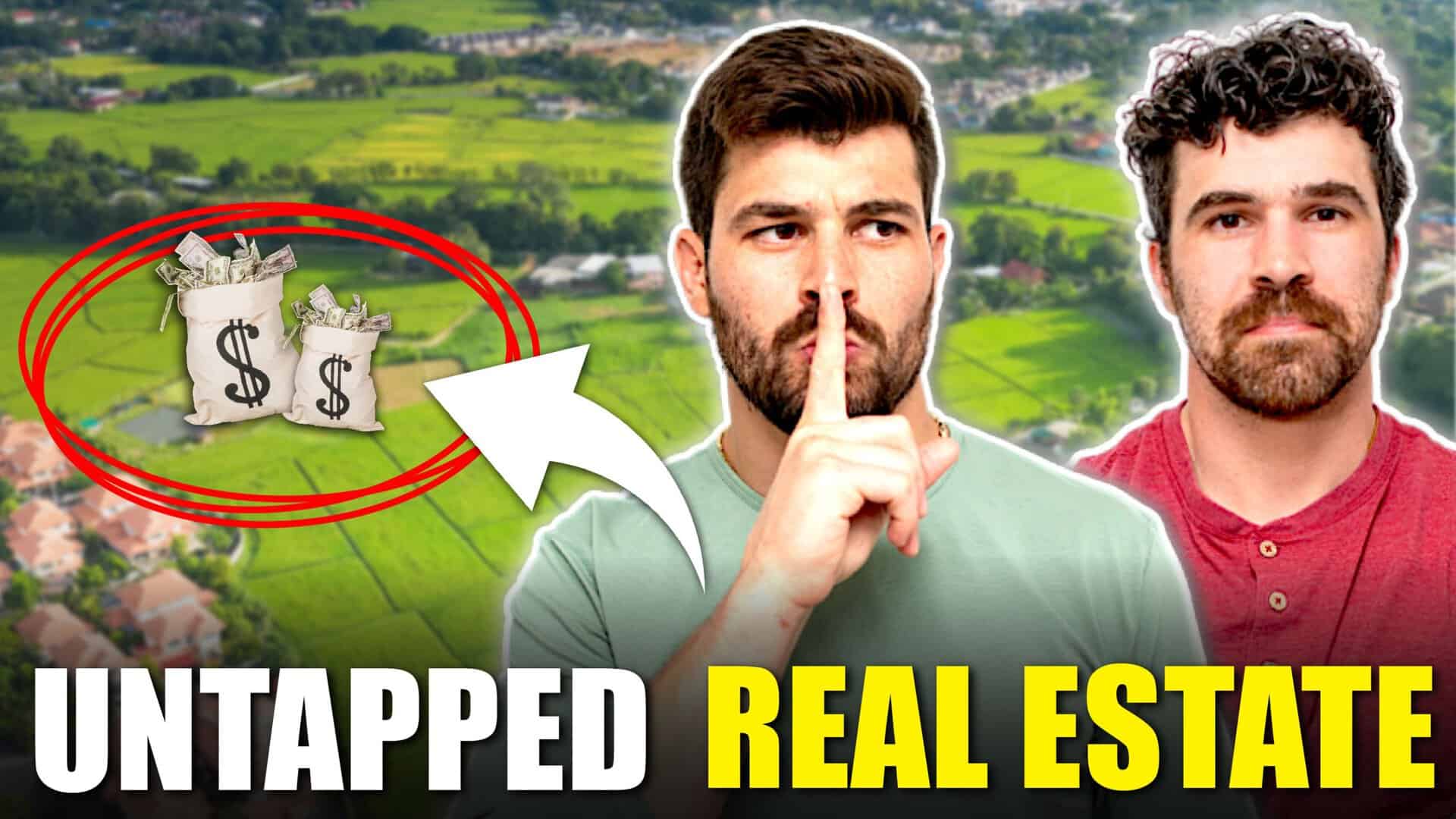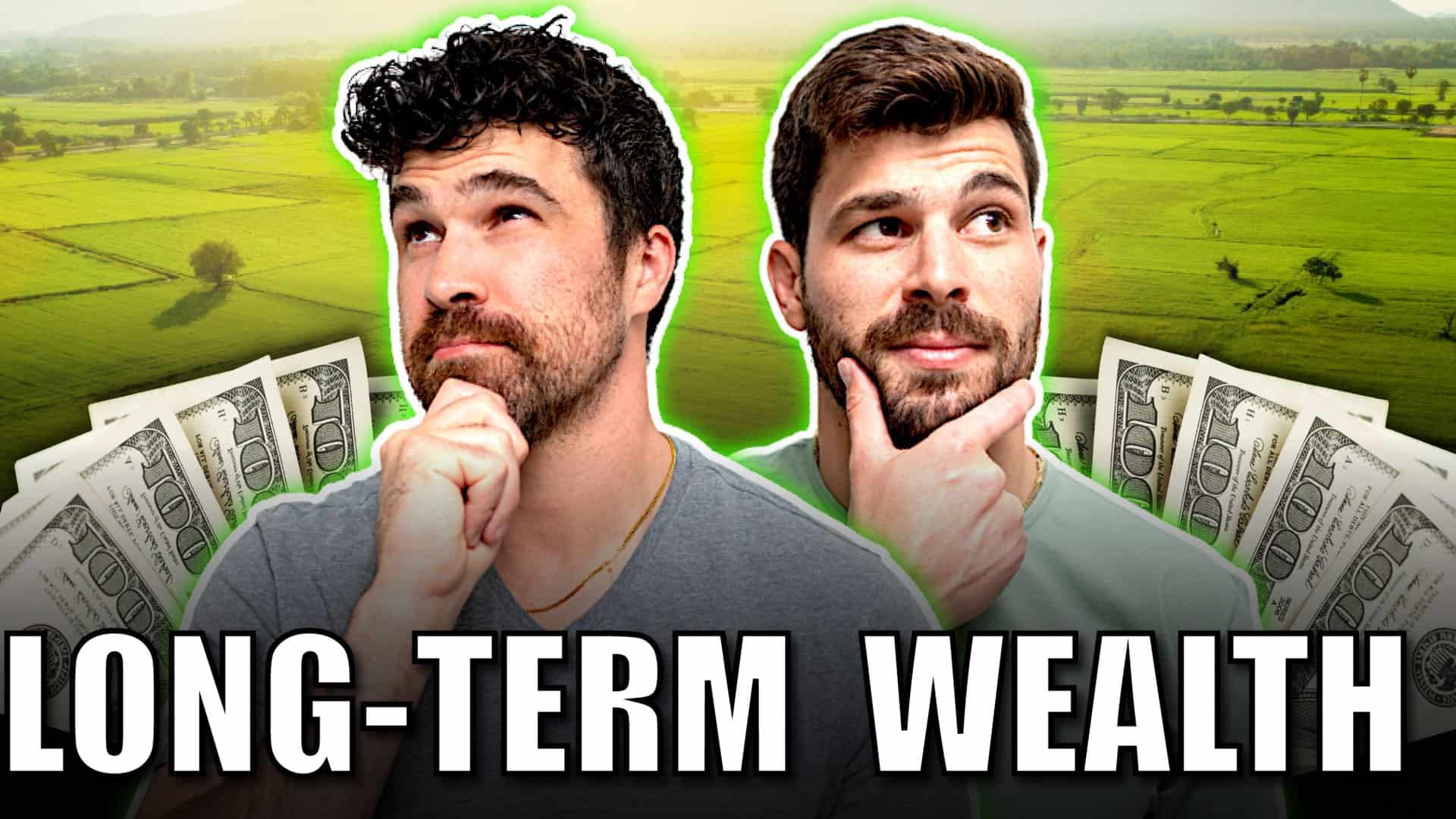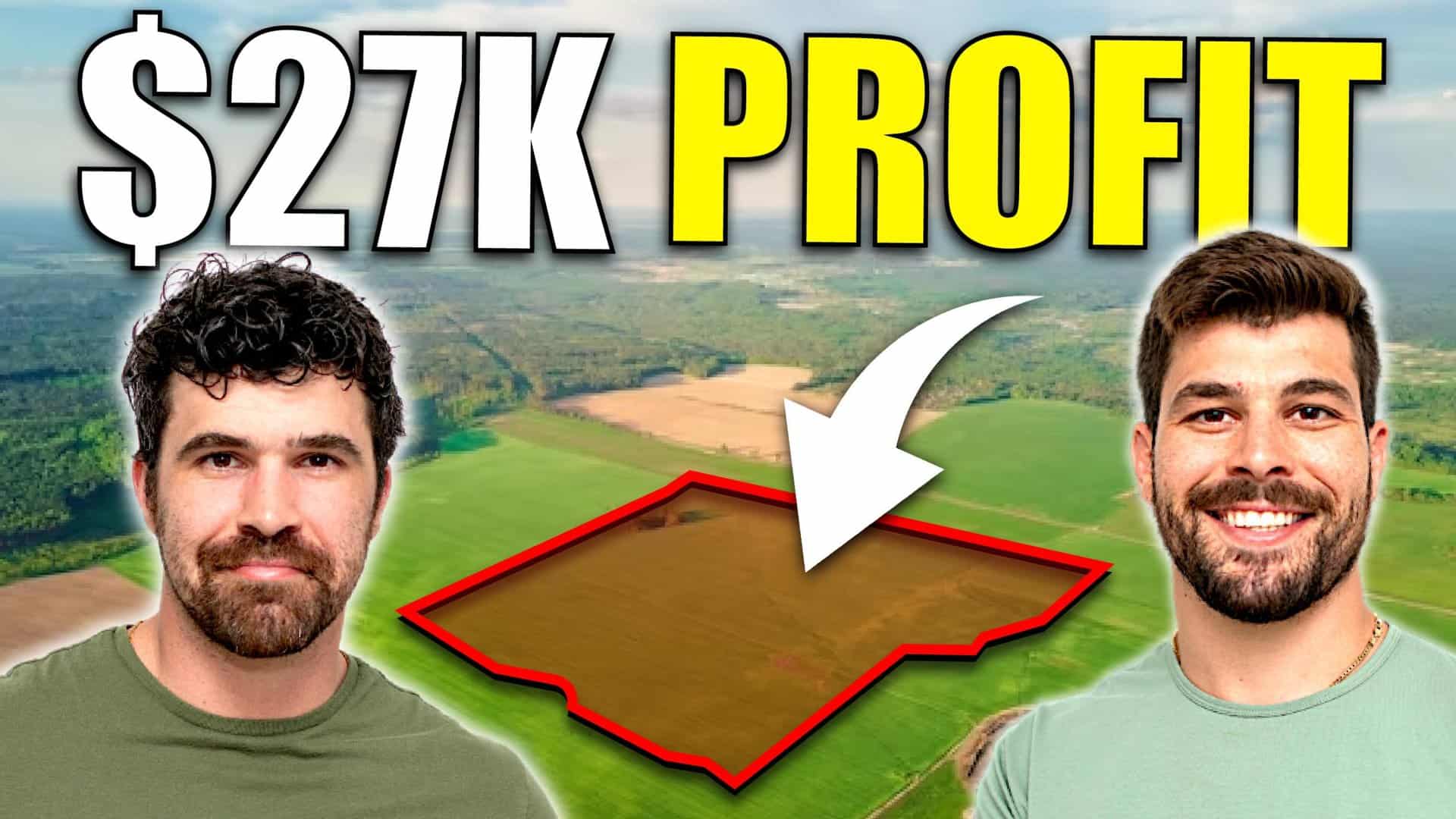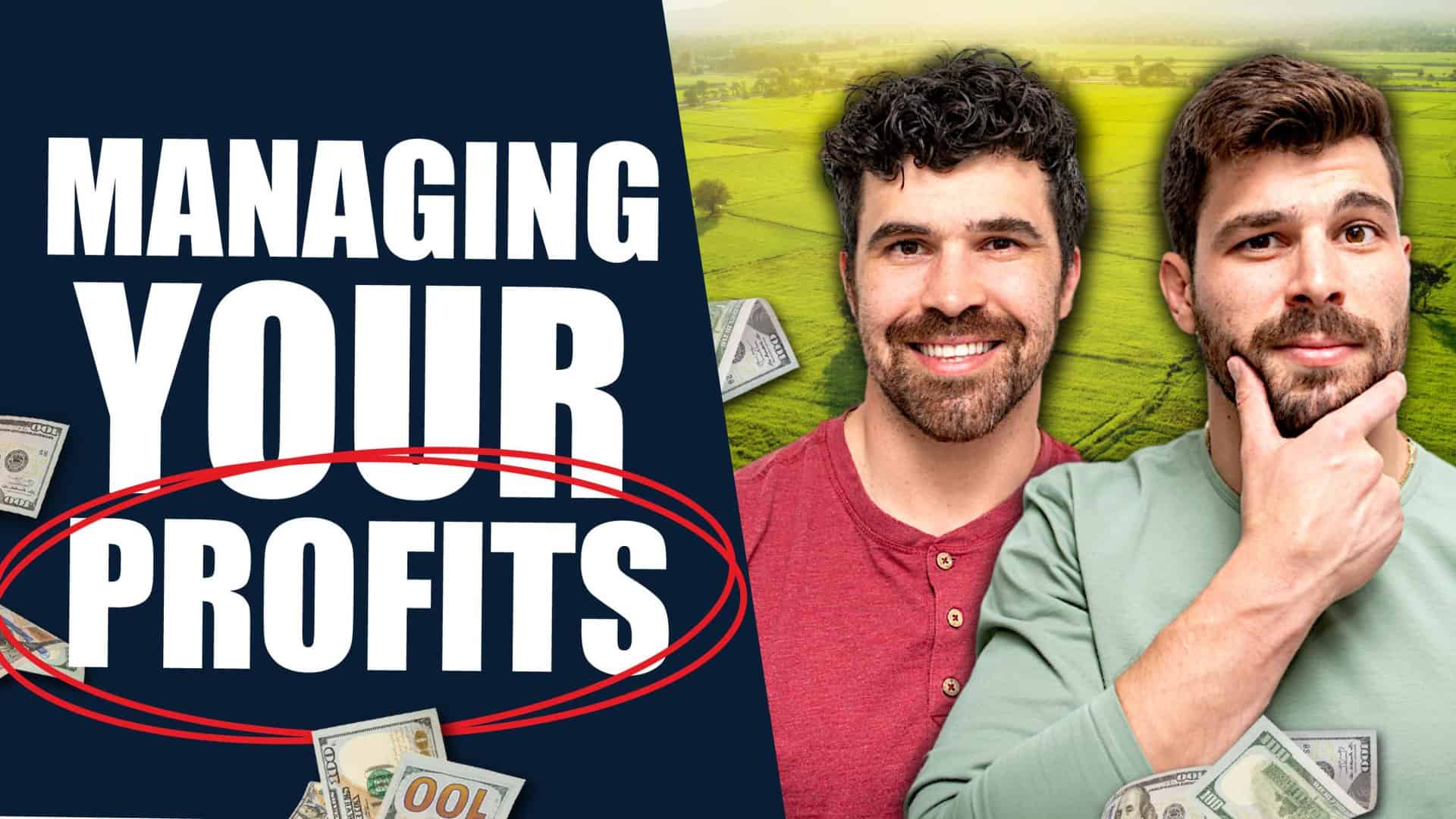How Survey Hacking Can Earn You Six Figures: Land Investing’s Best Kept Secret
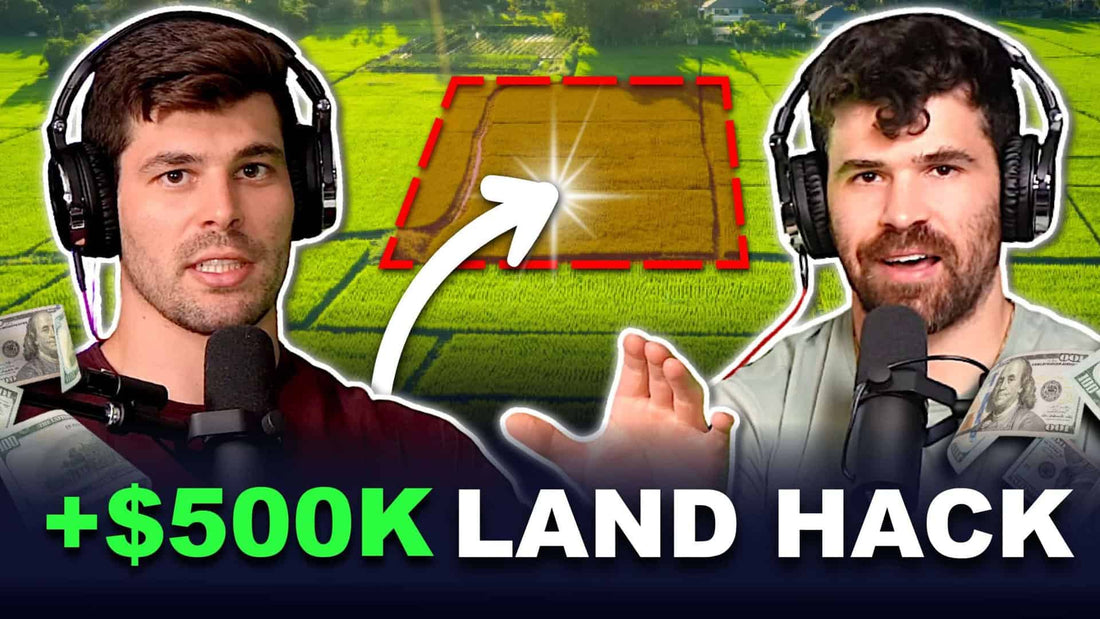
What is Survey Hacking & How to Use it to Scale Your Land Business
" target="_blank" rel="noopener">
Featured

Pro’s & Con’s of Holding Land as a Long-Term Investment
January 11, 2024
THREE Market Predictions Every Land Flipper Should Know for 2024
January 5, 2024
Ways to Find Cheaper Money to Fund Land Flipping Deals in 2024
March 27, 2024
City or Rural Land Investing: The Best Strategy for Wealth Building
July 8, 2024In this episode, Daniel and Ron Apke delve into the innovative strategy known as "Survey Hacking" and its potential for scaling land flipping businesses.
They explain how Survey Hacking involves purchasing larger parcels of land, subdividing them into smaller plots, and then reselling these smaller parcels at a higher total value.
This technique can significantly enhance profit margins by leveraging the value added through subdivision and careful planning.
The Apke brothers outline the steps involved in Survey Hacking, including the importance of working with surveyors and understanding local zoning regulations to maximize returns.
Watch or listen to the full episode below to get a look into the full survey hacking process so you can start implementing this lucrative strategy in your own land investing business! ⬇️

Join our free Discord channel!
Engage & network with thousands of new and experienced investors, participate in weekly Deal Reviews, and more!JOIN
Watch the Full Episode Here
Listen to the Podcast Here
View Transcript here
Ron: How do we target this? Alright, target houses on 20 plus acres, send them a letter. I’m interested in buying some of your land. I can survey and do all that. It is very, very successful because it sounds good, like it is an enticing offer to these sellers.
Dan: Everyone in this industry talks about competition.
If someone’s getting mailed and called and text all over and over again about their hundred acres to buy their hundred acres, what happens when the first person in the door comes and says, Hey, I want to buy five acres. That’s different. That’s unique. You’re standing out and you’re providing value that no one else provided there.
Ron: This is what we talked about with land investment. That’s why we call it our land investing online. This is just so many different avenues that you can go with land in general. And this is one that, I mean, you can do a deal, two deals a month and make half a million bucks.
Dan: Hey everyone. Welcome back to the real estate investing podcast.
Today’s topic, we’re talking about survey hacking. This is our second episode we’ve done on survey hacking. Last time, I don’t know if we had a name for it or maybe we came up with a name on the spot. But as always, guys, I’m your host, Dan Apke, joined again by my brother and business partner, Ron Apke. Ron, welcome.
Ron: Yeah. Happy to be here. Happy to talk about this topic for the second time. It’s a. I feel like it’s grown a little bit in our community since we’ve started talking about it just makes sense It’s just a strategy that makes sense in this business in a way that you can provide a ton of value for sellers So excited to get into it.
Dan: Yeah, and there’s multiple ways for those who don’t know what survey hacking is Essentially we can kind of hop right into the definition of what it is It’s where, essentially, you’re sending letters to people who own houses or just big parts of land, but you’re not offering to buy the whole thing.
Obviously, so if a house is on a property and it’s 50 acres, you’re not offering to buy all 50 acres. You’re offering to buy a percentage of their land. Maybe you want to subdivide, maybe you want to subdivide 5 to 20 acres off of that. Um, and vice versa, if it’s just land, same philosophy happens. They have a hundred acres, right?
Maybe you target a hundred plus acres. They have a hundred acres and you want 20 acres off of it or five acres or 10 acres. It’s the same philosophy as really trying to, you know, you’re, you’re, you’re attacking and buying part of their property, not the whole thing. So it’s easier for someone to let go.
Hey, here’s five acres. Yeah. I need that 40, 000 right now.
Ron: Yeah. That’s what I mean. Owning 50 acres is a ton of maintenance if you, if they want to keep it like up and keep it looking, it matters the part of the country. Some are just trees, but if it’s needs to be motor or something like that, it’s a ton of maintenance and you have people who they might want three, four acres.
They don’t know what to do. They don’t know the plan for it. So you make an offer to them. Like, listen, I’ll take the 47 acres. I’ll leave you three acres or whatever it is. You want to be flexible with what you can do for them. And, uh, they still keep their house. They keep the three acres of whatever they want to do with it.
And then you have the 47, 47 acres or the remaining acres.
Dan: Yeah. And, and that’s what I kind of want to get into is targeting these. So you split it up into land and then you split up the land plus houses, right? Yeah, well, how would you go about in general just coming up with a game plan
Ron: for me? I like targeting I think targeting the houses part is better.
So the land plus houses together So you’re getting residences. I mean, there’s the list isn’t to target Honestly, it’s just primary residences people who own 20 plus acres you say and really when you’re targeting I don’t think you really need to look for road frontage. They have road frontage if they have a house on it.
Typically, if it’s 20 acres, it’s not, maybe you just don’t have under 200 feet of road frontage, something like that. So you have some room for, uh, the end buyer to get back to the parcel that you split off. But, uh, I think keeping it pretty broad when you’re targeting the house part, I think keeping it pretty broad, 20 plus acres with a house on it, targeting them, offering them.
You want to be flexible. You’re not just, I’m going to buy 90 percent of your land.
Dan: We’ll get into that. Yeah. You want to be flexible with your offer for sure. And, and that’s the thing, I think with something like this and a lot of people are getting deals doing this now, but I feel like it’s one of those things where the more land they have, the more likely they are to sell.
It’s like, giving away 1 percent of your land versus 75 or a hundred percent, you know, giving away 2 percent of someone’s land for them to be able to chop that off. It’s 2 percent instead of 50. If they have 10 acres and you ask them to buy five, that’s 50 percent of their land, you know? So it’s going to be a little bit more difficult for them to split off half of their land rather than if they have a thousand acres splitting off 20.
Yeah. And then that’s, what is that?
Ron: If you get big parcels, you can do so much with this. I think about it more so from like, We’re opening a whole new aspect of potential sellers because they own houses, uh, and we’re not making them move. That’s the biggest thing, I think. Like, some people are in a financial situation, they own a huge asset, like that land plus house is a huge asset, but they don’t want to go move somewhere else.
So you’re giving them, uh, financial, obviously, you’re giving them money to stay in their house, keep their X acres, and then I’m going to take this and get you a good amount of money.
Dan: And you talk about the competition side too. I mean, yes, you can get them their money and everything. And you know, if someone needs to, you know, they own a house on 100 acres, they have some serious expenses that come off.
They’re not going to sell their house first. They’re going to sell their assets under it. But the problem is, in today’s era, the house and the land are connected to one mortgage or one property, right? But if you go to them with that solution, they’re Hey, I can subdivide 20 acres off and give you 48, you know, 100, 000, whatever the property’s worth.
That is a ton of money to them. A lot of times those people still, like they’ve owned that house a long time, whatever it is, or, uh, then they just need the money for whatever reason. And you’re just finding a way to split their asset off essentially for them.
Ron: Yeah, it’s a, you’re essentially improving like you’re, the skill is having a surveyor hit line, being able to line up everything with closing.
So there is like a skill opposed to just buying the entire asset and reselling it. So there is more technicalities that go into it. Some of them won’t know where to start if they want to do that themselves. Like a seller might think I’m just going to do this myself. Like they don’t know where to start a lot of times with that.
I’m talking to the county, getting it approved if it needs to be everything like that. So there’s a lot more that goes into it. Besides just buying and reselling.
Dan: I agree. And i’m curious to see the stats on because I don’t want people to hear this episode and be like, oh I gotta go target houses now and ask for part of their land.
That’s part of this I want you to target big pieces of land and ask for part of their land instead of whole as well And you’ll get a better response rate and be able to buy a lot of properties And you also get people call back and just say oh, I want to sell all of it Yeah, and it opens up the door for that.
Um, but the thing is you everyone in this industry talks about competition You Right. So let’s think about that for a little bit. If, if someone’s getting mailed and called and text all over and over again about their a hundred acres to buy their a hundred acres, what happens when the first person in the door comes and says, Hey, I want to buy five acres.
You know, that’s different. That’s unique. You’re standing out and you’re providing value that no one else provided there.
Ron: A hundred percent. I think you’re going to like, there’s so many more interested sellers. If you can say, Uh, whatever it is on the offer, but if there’s just gonna, you’re just open up so many more potential sellers if you’re doing it for houses or you’re doing it for land, because a lot of people want to keep, if they have 50 acres and you’re buying 10 of it, it doesn’t affect them that much.
Uh, if they use it a couple of times a year for rec or anything versus, you You’re trying to buy all their 50 acres. They don’t have that land anymore. It’s gone. But if you can get them X dollars for 10 of the acres, like it is very, very enticing.
Dan: Think of that. Think of if you got an offer for that on your property.
Say we had a hundred acres, like just think of getting that offer for 10 of them and you’re like, that’s subdividing for you. That’s why it’s called survey hacking. You’re reverse engineering it. People want to subdivide their land to make money, but they just don’t know the process or how to.
Ron: And you’re, like their asset.
They remain like, for that example, you take 10 acres of the 450 acres like their asset price doesn’t go down that much like the difference between 50 and 40 acres Is not that much you’re going to make if they went and sold the 40 acres right after you bought the 10 acres They’re going to make more money.
That’s what I tell them You think five acres off your hundred you’re going to sell 150 acres and 145 acres at the same exact price It’s the same thing except you just get that asset. So yeah, I mean there’s so many different ways to go about this. I don’t know who should be going for this right now.
There’s a little more intricacies. You got to line things up, I think with survey or getting earnest money down. You need to get earnest money down.
Dan: Survey laws. You got to make sure. Yeah.
Ron: Restrictions, everything like that. Um, so there is a little more that goes in. You definitely want to do some due diligence on the County, but who do you think this strategy, like, is it just a, we talk a lot about like pieces of strategies.
Dan: Like people did this accidentally too. That’s how it really came up as we were accidentally
Ron: from other data sources. Now there’s not houses on their data sources.
Dan: Correct. That’s actually true. Yeah. So what Ron’s saying there, that was, that was a good point. You’re saying that, um, you know, from certain data points or certain data providers, people are sending mail to houses, not knowing accidentally, not knowing there’s a house on it just because they’re relying on County provided data with the LAN portal.
We remove all that because we use AI and machine learning to analyze the houses and make sure you’re not sending it there. Um, But before what was happening, 10, 20 percent of your mail was going to houses and you didn’t even know it. So people, these people with houses are like, yeah, I own 20 acres, but I got a house on it.
You want 10 acres. And that’s essentially how I think Shelby ran into a deal like that. One of our first deals, a lot of people did. And now we started preaching survey hacking because The competition, the profit and the value, the value, the value you bring in the sellers, the main thing. And I think this all just kind of lines up with our proposition.
Ron: Yeah. To be trans, like it’s not something we made up. Like we, we coined the term survey hacking, but it’s like it was deals that people were running into. Like this makes a lot of sense.
Dan: We made it up from a targeting aspect.
Ron: Yeah. How do we target this? That was kind of like, Yeah. How do you repeat this situation?
Like for subdividing, how you repeat, how do you make subdividing more predictable? You get road frontage information. Like you have more information on the front end, just like this. Like, how is this repeatable? Like, how do we actually target this? All right. Target houses on 20 plus acres, send them a letter.
I’m interested in buying some of your land on your, um, I can serve it, do all that. So it’s just about the strategy, I think. And it is very, very successful because It sounds good. Like it is an enticing offer to the sellers.
Dan: I agree. And, and especially like you can get into the weeds. Let’s talk about the offer and how to target, because I’m curious to see if you targeted people, you know, house value, things like that as well.
You know, you’re targeting mobile homes. mobile homes that have 50 plus acres. Are those going to be more likely than a 1. 8 million house on there?
Ron: I would think so. I think the number one thing when you’re like running into this is people are going to ask like, what are you doing with the land? Cause you’re their neighbors.
Exactly. That’s going to be their neighbor. Um, but you can get flexible with where you split it off too. It’s like what land you can draw them up some options. Yeah. Draw them up some options. Like here’s what I want this far from your house. I think this works the best. Uh, that’s the, the flexibility of what you can do with it.
You can be flexible with an amount of acres you subdivide off the location, the acres, the amount of money, obviously the, the amount, um, all that different stuff. Um, but as far as targeting, I think, I don’t know who would be the most likely, I think like. I think people who aren’t using their land, like I think a lot of people inherited or they’re living on a house and they’re like, what am I doing with this 50 acres?
And I get a hundred thousand dollar offer for 12 of the acres or something like that. And like, it sounds really, really good. Like having an extra a hundred thousand dollars and keeping 30 acres. I just think it’s a good offer for a lot of different types of people.
Dan: I, yeah, I don’t think you want to get too granular with who you’re targeting in terms of the person that owns it or the house.
Um, I would start pretty broad and then see how you go and see the feedback and go from there. Let’s talk about the offer letter now. So we talked about what it is, why it works, the value we’re bringing, the different ways targeting land, houses, all that. Now let’s talk about the offer letter. Is it going to be, are you going to offer a percentage of the land that they own?
Are you going to keep it pretty open, neutral letter type of like, I want to Sub, uh, subdivide off two to 20 of your acres on your 50 acre lot. Um, if you want, if you’re interested in selling any of your, you know, acres, I can pay for the subdivision or the survey and all that. Like, how would you target that?
Ron: I think you want to be pretty neutral about it because I don’t want, you want to get. At first like maybe you see some things or maybe like certain areas like I want five acre parcels Like I want five acre parcels. It’s gonna make so much sense. Uh, there can be situations I think you get a lot more granular with some things, but I think overall doing it neutral And I think just letting them know, because it’s going to be confusing, like I think from a seller’s perspective, it’s going to be confusing.
So I think you just kind of like, here are the steps that we do. One, we talk about how much land you want to part with of your X acres. Um, two, we come up with a price that makes sense for us and you. Three, we’re going to line up a survey. All this is going to be done by us. Um, and then we’ll close and you’ll get your money that we agreed on in X.
whatever it is, you want to get relationships with surveyors. Um, but I think just laying out like the steps that it is for them, you need to be pretty clear. You can have a confusing, not to land focus. Um, but it just needs to make sense. Like step one, step two, step three, that’s what it looks like. We’ll get you money in four weeks.
Dan: Yeah. So like opening a line, Hey,
Ron: I think it’s similar. I see you own, I see you have a house on 50 acres in X County, um, Ohio. What we do is we offer to buy some of your land off of that property. Essentially. I think something like that is going to be like just very black and white, I think is going to work.
Dan: Interesting. Yeah, I agree with you. And, and you want to have, if you guys are forming this offer letter, have your, Uh, significant other, someone else in the industry, read through it and make sure they can understand it. Have some of the dumbest friends you have read it and make sure they, I’m just kidding about that, but just make sure anyone can understand it.
Uh, because if you, if they can’t, the person who owns the land isn’t going to be able to, and this can get kind of confusing, and they’ve never seen something like this before, so I like what you hit on being very, very clear, step one, two, three, I saw you own 50 acres in Blank County, Ohio, I’m here to, I’m interested in buying some of your, or subdividing off part of your land, You know, whatever you could even do.
Like I’m interested in buying two to 20 of the acres from that. Um, curious to see how it will work. These fall naturally in people’s lap targeting these, and that’s a sign that it’s going to work really well. That’s always been assigned. And now there’s people targeting it and getting them deals back.
But when you have a niche falling in your lap like that, that’s how we came up with this. Like you said, it’s just falling in your lap and you start to get precise with how you’re targeting and your response rate and everything really goes up from there.
Ron: Yeah. I mean, we ran into this from our students, good, good land investors who just were creative with situations that came about, um, someone calling them back with a house on their land and not just be like, Oh, fuck.
not another house on the land or whatever this data provide, whatever it is. Um, instead they found the opportunity, like the best land investors look for opportunities and that’s what they did. And that’s how they, I mean, some of these deals you can get such a good deal. You can buy five acres for 30 percent of market value when you are, this is an improvement.
They’re keeping their 40 acres, whatever the amount is, and you can get such a good deal. You can three extra money on this.
Dan: I wonder if you just targeted. 20 acres and just say I’m interested in buying five of them.
Ron: Yeah,
Dan: I wonder how that would work
Ron: It would I think it would be good. I that’s what I was curious about like Look for the type of land that sells the best five acres, seven acres, 10 acres, whatever it is, and then do that.
But I think you are, uh, putting your potential margin in a box a little bit.
Dan: You are, but you could do like five acres plus minus sign, you know, one of those like plus slash minus.
Ron: But then if you’re doing a certain amount, then you can get an offer price on there. That’s the thing.
Dan: Yeah. We typically offer 25, 000 for five acres.
Uh, The next steps are give us a call. We can discuss it. We can come up with the amount of acreage you want to survey off and sell. And then we can, uh, you know, negotiate a price, close the deal. You’ll have your money within X amount of time.
Ron: Yeah, for sure. You probably, I think with something like this, cause you are going to get a survey.
I think you, Um, another value is Dan, now that I think about it is one, you can get a survey of their house too. So they have an up to date search. So because they’re going to have an up to date survey now, so that it’ll be nice that they have a brand new survey for their house area as well. But what I was thinking is you probably need a price per acre determined before the survey opposed to having a set price because it’s going to be hard for them to get exactly the right acres.
Um, so yeah, yeah. So definitely have a price per acre agreed upon.
Dan: You mean on the offer letter or talking?
Ron: I just mean when you talk, like when you’re getting under contract, like cause the surveyors not gonna be able to pull exactly exactly five acres typically. Um, so it could be 5. 21, 5. 01, you know what I’m saying?
So they are getting compensated for the amount of land you actually get.
Dan: Yeah, it’s plus or minus a little bit. Typically they’re
Ron: going to be close if they’re good surveyors. Right? Yeah. They’ll be, they’ll be within a tenth, I think, of an acre.
Dan: And before you do this, you want to call the county. So you do your market selection.
You go through all that. You want to call the counties and just understand what the regulations are for surveying off. Uh, you can tell them what you’re doing. Just give them a break. Is there any restrictions? What are the three questions we ask? Why? How small can you survey? Yeah. Subdivide. Um, is there a minimum amount?
Is there a minimum amount of how much road frontage you need? And are there any restrictions created from that?
Ron: Yeah. Just find out the minor. So you want minor subdivide, major subdivisions are going to need approval. Typically, um, a lot more paperwork, all that crap, minor subdivide. You’re just going to need a survey.
Essentially. You’ll need a platter survey. Some counties, you don’t even need a survey, but I would always get a survey for this example. So you have that on the back end when you’re selling. I think the guys, this is, this is what we talked about with land investing. That’s why we call it our land investing online.
This just so many different avenues that you can go with this with land in general. And this is one that, I mean, you can do a deal, two deals a month and make half a million bucks. Oh yeah. Get really precise with what land you’re targeting. I think marketing is cheap too. Because why? I mean, I just think it’s more, I think you’re going to be more effective with marketing.
It’s going to be more, more sniper.
Dan: It’s a more sniper approach, but you think you’re going to have better, um, response rates. And I think your ROI is going to be better per letter. I agree a hundred percent. Yeah. Anytime you get good at a niche though, typically that’s what we see.
Ron: For sure. And this isn’t something like you should be doing necessarily on your first deal.
If you run into one on your first deal, um, great, like go for it. But I don’t think it’s necessarily your first, second, third deal maybe, but this is a niche that you can put some of time effort into testing. I was talking with Michael last week. I just like, like he was working on subdividing calculations and stuff like that with offer prices and like just putting some time into the front end to figure out what is going to work.
Like you said, like. looking over the letter. Letter is very important for us. How is, what are they going to see when they first open that letter? How are you going to talk to them when they first open that letter? Um, so all these stuff, the front end work is so important. Then you can create almost a playbook for what works.
And we’re not teaching this stuff. We don’t teach this stuff. We’re just talking about it. Um, so it’s not like you might be doing something completely different than someone else and that’s the beauty in it.
Dan: Yeah, exactly. And I want to talk real quick. We can touch before we wrap this up is building a list because Now you have a road frontage filter in the LAN port and you guys can target specific amounts of road frontage Just like we do for any subdividing Typically and if you’re going after 20 plus acres or 40 plus acres for this You’re probably gonna want to use that because you don’t want to subdivide off someone’s With a you know flag shape a lot where it’s all awkward and then you got to share driveways and all this stuff going up It I think you use that here You think so?
Ron: Yeah, I was, yeah. I think, I don’t think you need to be too small though. Um, or too big. You don’t need No, like a thousand feet. I think a thousand’s too. Too much for 20 plus acres. Yeah. I think, I mean, you can get creative though. I, I imagine like a 500 foot road frontage, like a house is only Okay. 80 feet wide or something like that.
And you can make a flag for your, what, about 500? Yeah, that’s what I was kind of thinking. I was thinking 500 for like 20 acres plus five hundred’s, a good amount. I don’t want you putting yourself in too much of a bucket, but I also don’t want you sending mail to deals that can’t happen.
Dan: That’s what I mean.
Yeah, well those are gonna come back though. But yeah, you I’d be curious if you guys are listening and Map under 500 and see what type of land and see if there’s opportunities.
Ron: Map 300 to 700 on the land portal and just see what those type of parcels look like with houses Yeah, and I’d be very curious.
I don’t know exactly but But I’m almost sure you could come up with something on most of those.
Dan: Yeah. You do not want to put yourself in a box here, Ron’s right. So, uh, be flexible with that, analyze it, always click view on map after. So put 500 or 300 to 700 road front, just to see the type you’re getting.
But generally you don’t want to max in there because the max is the better, but put a minimum of 300 feet or something like that, potentially if it makes sense. Um, and then you can map them out and look at the properties you’re going to be targeting. Don’t, I don’t like to get too precise with this type of stuff.
I think you just get your list and kind of rip it with. Subdividing on these big, big, you know, 500, 000 properties. That’s where we get more precise and go through the list and we’re cold calling and, uh, making sure there’s ample amount of road frontage on the property and all that stuff. But something like this, you keep the same approach.
It is more of a sniper, but I think you, you don’t, I don’t think you get too deep into your list building.
Ron: Yeah. Cause we’re already so niche in what we are. I think you want to be careful with that. Maybe you’ll find some, strategy.
Dan: Wetlends, all that stuff. Like, yes, get rid of all those. But other than that,
Ron: yeah, I agree.
I don’t have much more to add. I think I’m interested. I, whenever we talk about something like this, it’s always interesting to see the next one, two, three months, like who’s taking action on something like this, who’s trying to implement something like this. So I’m always excited after we talk about something like this.
Dan: Absolutely guys. Well, I’m excited to see you guys as results as well. As always, guys, thank you for joining. We’ll see you guys next episode. As always, thank you for joining. Please do us a huge favor and like, and subscribe our YouTube channel and share this with a friend. It really means the world to Ron and I, but more importantly, it could help change the life of someone else.
Thanks for joining and we’ll see you next episode.

Interested in land flipping, but don't know where to start?
Join our Discord channel, where over 2,000 land investors connect and work
together to find financial freedom through land!
JOIN HERE.

